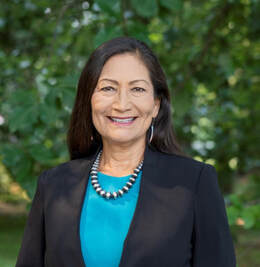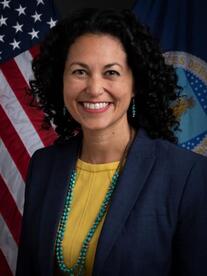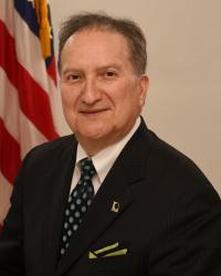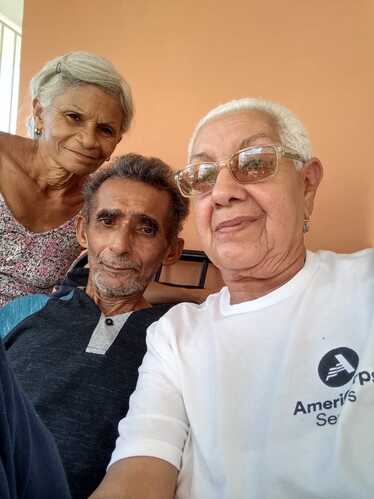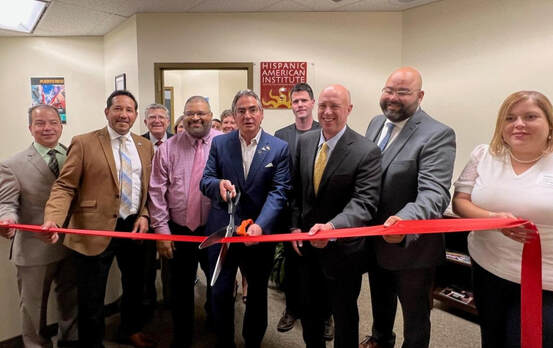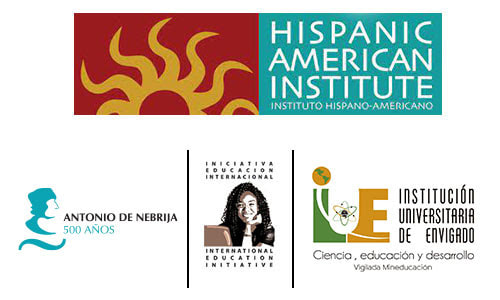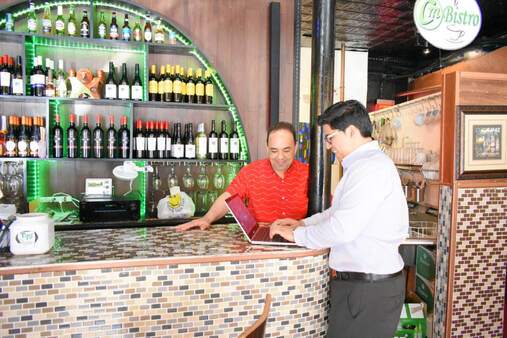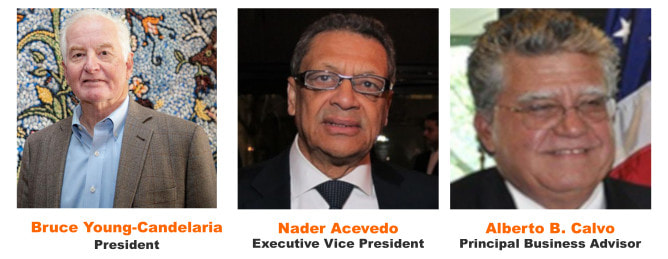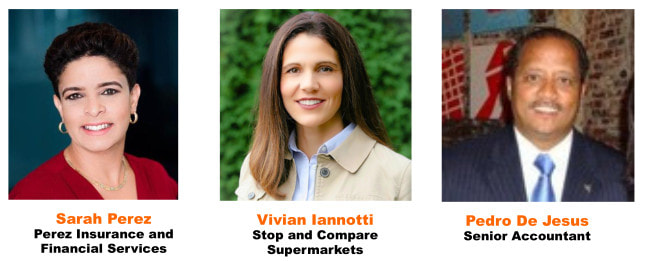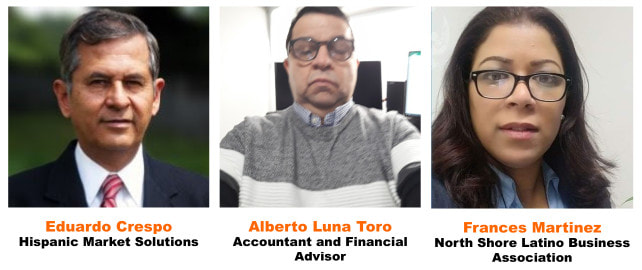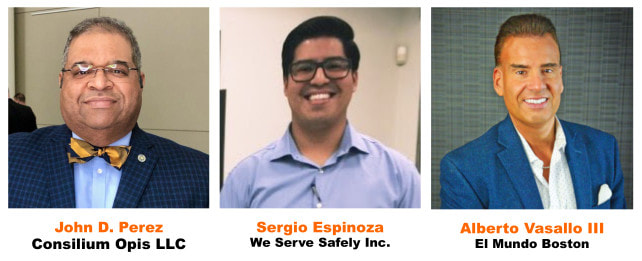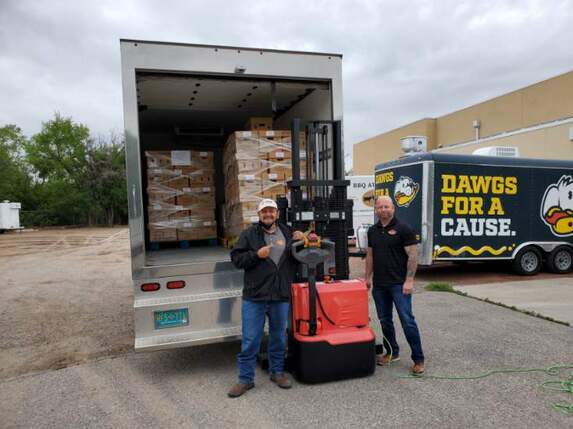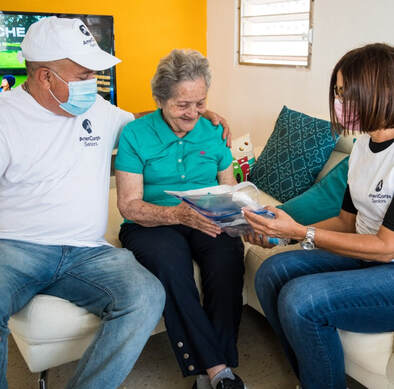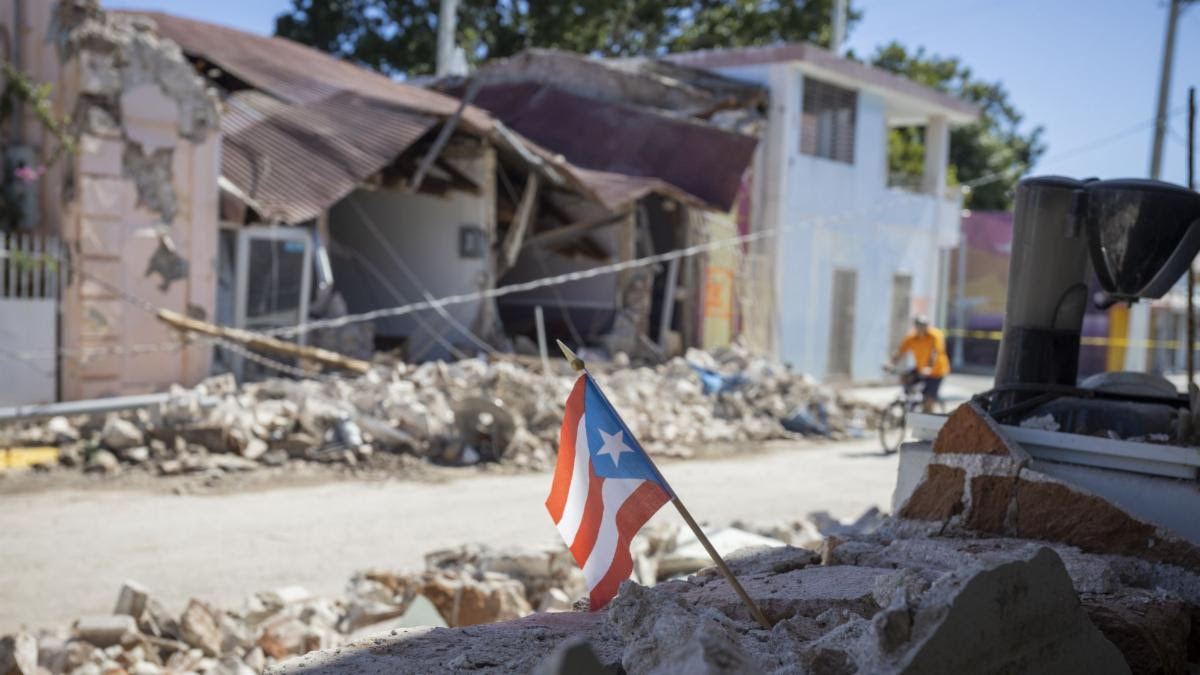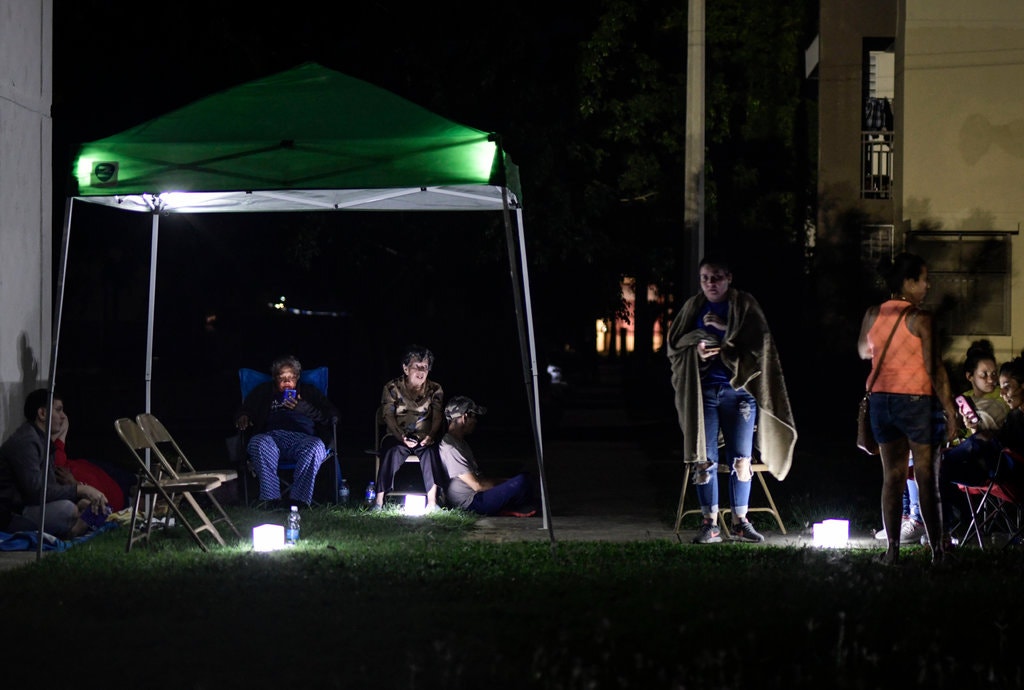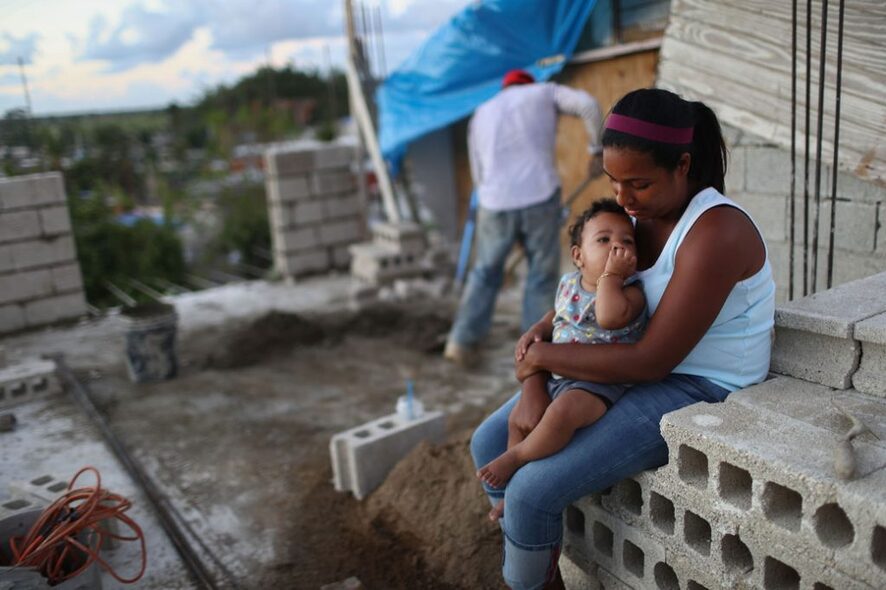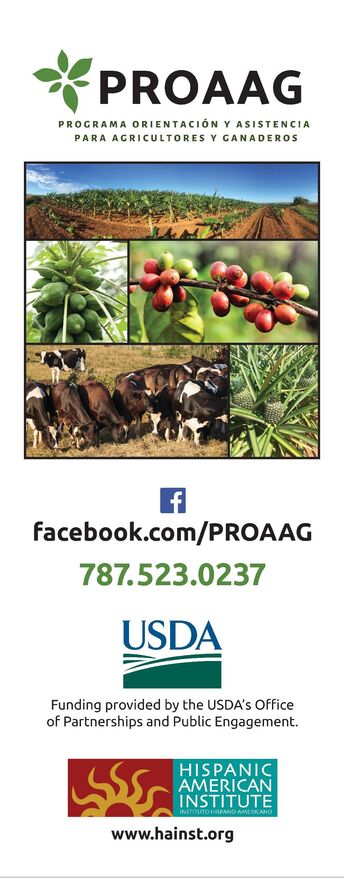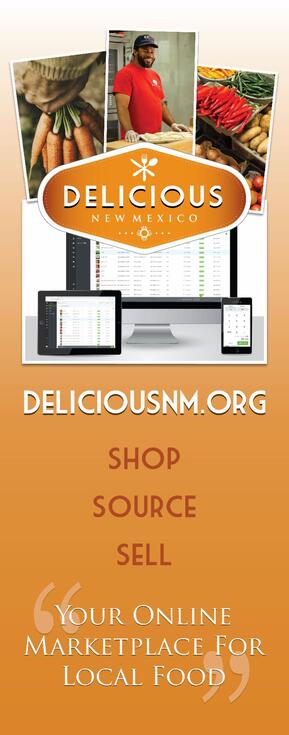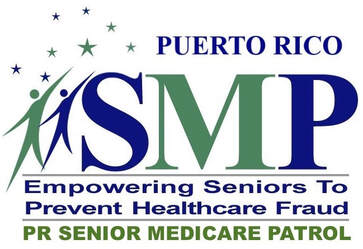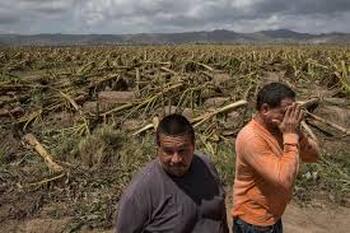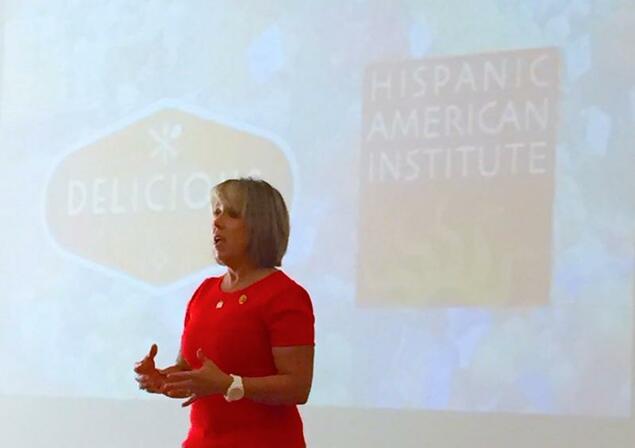HAI helpS Puerto rico farmers
and their local markets

November 10, 2023 ---- The Hispanic-American Institute (HAI) now operates three projects aimed at supporting Puerto Rico farmers and ranchers and their local markets.
Agricultura Comunitaria is working with grass-roots organizations in the northwest, including Desde Mi Huerto to build vegetable, fruit, and herb gardens at schools and community service agencies in urban and rural settings.
The project also provides technical assistance to eligible farmers and reimburses them for up to 85% of the cost of installing innovative technologies such as hydroponics, aquaponics and greenhouses. The project also encourages traditional and climate resistant crops and practices. Agricultura Comunitaria is financed by the USDA/NRCS Urban Agriculture and Innovative Production Program.
The Northwest Puerto Rico Farmers Market Promotion Project was just launched by the Institute. The project promotes new and existing farmers markets, including Agro Mercado del Corazon in Hatillo and Aguadilla Farmers Market..and provides them and with supplies and technical assistance. The project is financed by the USDA/AMS Farmers Market Promotion Program.
For more information about Agricultura Comunitaria and the Northwest PR Farmers Market Promotion Project contact Project Coordinator Carlos Axtmayer at [email protected].
The Institute's Cultivating Resilience USDA 2501 Program helps connect farmers and ranchers with USDA programs and services, and since 2028 as helped over 1,000 agricultural enterprises in Puerto Rico learn more about financing and other support available from USDA. The project is financed by the USDA Office of Partnerships and Public Engagement.
For mor information about Cultivating Resilience contact Project Manager Blanca Rodriguez at [email protected]
INSTITUTO APOYA AGRICULTORES EN PUERTO RICO Y SUS MERCADOS DIRECTO AL PUBLICO
Instituto Hispano-Americano actualmente opera tres programas de apoyo para agricultores y sus mercados locales en
Puerto Rico.
Agricultura Comunitaria funciona en varios Municipios del noroeste, colaborando con socios lcales, inlcuyendo Desde Mi Huerto, con el propósito de promover mayor acceso a alimentos frescos, saludables, económicos, cosechados localmente, y más resistentes a eventos climaticos,
Agricultural Comunitaria entra en acuerdos con entidades sin fines de lucro para construir y operar huertos comunitarios que producen frutas, vegetales, y hierbas para el consumo en comunidades de ingreso módico. El programa también promueve productos agricolas tradicionales y resistentes a eventos climáticos.
Además el programa provee a agricultores elegibles con asesoría y reembolso de hasta 85% del costo de equipos y materiales con el proposito de promover tecnologías agricolas innovadoras, como sistemas umbráculos, hidropónicos, acuapónicos y de riego.
Agricultura Comunitaria es subvencionado por el Servicio de Conservacion de Recursos Naturales (NCRS) del Departamento de Agricultura federal (USDA).
Mercados Agrícolas del Noroeste es un nuevo programa de apoyo a mercados tipo directo al público (Farmers Markets) de agricultores en pueblos del noroeste de Puerto Rico, el cual provee materiales, equipos, mercadeo y asesoramiento. El programa esta subvencionado por el USDA/AMS/Farmers Market Promotion Program.
Para más información comunicarse a Carlos Axtmayer Fernández a [email protected].
El Instituto además administra Cultivando Resiliencia, Programa 2501 de USDA, que provee información y asesoria a mas de 1,000 agricultores y ganaderos en el centro de Puerto Rico sobre los servicios y programas de USDA. El programa es auspiciado por la Oficina del Secretario de USDA.
Para mas informacion sobre Cultivando Resiliencia, comunicarse a Blanca Rodriguez a [email protected]
Agricultura Comunitaria is working with grass-roots organizations in the northwest, including Desde Mi Huerto to build vegetable, fruit, and herb gardens at schools and community service agencies in urban and rural settings.
The project also provides technical assistance to eligible farmers and reimburses them for up to 85% of the cost of installing innovative technologies such as hydroponics, aquaponics and greenhouses. The project also encourages traditional and climate resistant crops and practices. Agricultura Comunitaria is financed by the USDA/NRCS Urban Agriculture and Innovative Production Program.
The Northwest Puerto Rico Farmers Market Promotion Project was just launched by the Institute. The project promotes new and existing farmers markets, including Agro Mercado del Corazon in Hatillo and Aguadilla Farmers Market..and provides them and with supplies and technical assistance. The project is financed by the USDA/AMS Farmers Market Promotion Program.
For more information about Agricultura Comunitaria and the Northwest PR Farmers Market Promotion Project contact Project Coordinator Carlos Axtmayer at [email protected].
The Institute's Cultivating Resilience USDA 2501 Program helps connect farmers and ranchers with USDA programs and services, and since 2028 as helped over 1,000 agricultural enterprises in Puerto Rico learn more about financing and other support available from USDA. The project is financed by the USDA Office of Partnerships and Public Engagement.
For mor information about Cultivating Resilience contact Project Manager Blanca Rodriguez at [email protected]
INSTITUTO APOYA AGRICULTORES EN PUERTO RICO Y SUS MERCADOS DIRECTO AL PUBLICO
Instituto Hispano-Americano actualmente opera tres programas de apoyo para agricultores y sus mercados locales en
Puerto Rico.
Agricultura Comunitaria funciona en varios Municipios del noroeste, colaborando con socios lcales, inlcuyendo Desde Mi Huerto, con el propósito de promover mayor acceso a alimentos frescos, saludables, económicos, cosechados localmente, y más resistentes a eventos climaticos,
Agricultural Comunitaria entra en acuerdos con entidades sin fines de lucro para construir y operar huertos comunitarios que producen frutas, vegetales, y hierbas para el consumo en comunidades de ingreso módico. El programa también promueve productos agricolas tradicionales y resistentes a eventos climáticos.
Además el programa provee a agricultores elegibles con asesoría y reembolso de hasta 85% del costo de equipos y materiales con el proposito de promover tecnologías agricolas innovadoras, como sistemas umbráculos, hidropónicos, acuapónicos y de riego.
Agricultura Comunitaria es subvencionado por el Servicio de Conservacion de Recursos Naturales (NCRS) del Departamento de Agricultura federal (USDA).
Mercados Agrícolas del Noroeste es un nuevo programa de apoyo a mercados tipo directo al público (Farmers Markets) de agricultores en pueblos del noroeste de Puerto Rico, el cual provee materiales, equipos, mercadeo y asesoramiento. El programa esta subvencionado por el USDA/AMS/Farmers Market Promotion Program.
Para más información comunicarse a Carlos Axtmayer Fernández a [email protected].
El Instituto además administra Cultivando Resiliencia, Programa 2501 de USDA, que provee información y asesoria a mas de 1,000 agricultores y ganaderos en el centro de Puerto Rico sobre los servicios y programas de USDA. El programa es auspiciado por la Oficina del Secretario de USDA.
Para mas informacion sobre Cultivando Resiliencia, comunicarse a Blanca Rodriguez a [email protected]
New mexico champions in the biden administration
Interior Secretary Deb Haaland Deputy Agriculture Secretary AHRQ Director Robert Otto Valdez
Xochitl Torres-Small
Xochitl Torres-Small
August 18, 2023 --- The Land of Enchantment has leaders at three Federal agencies that touch every corner of New Mexico.
Deb Haaland is the Secretary of the Department of the Interior, which manages the nation's vast natural and cultural resources. She is the first Native American to serve as a Cabinet Secretary. The Department of the Interior supports efforts to make Western and Tribal communities more resilient to drought and climate change, address environmental justice, and empower first responders.
Xochitl Torres-Small is the Deputy Secretary of the Department of Agriculture, the second-highest ranking official at USDA. She is the first Latina to hold that position, and previously served as Undersecretary for Rural Development. USDA offers multiple resources impacting nearly every aspect of life in New Mexico, including the Rural Partners Network, which works to connect communities with federal programs.
Both Secretary Haaland and Deputy Secretary Torres-Small are former Members of Congress representing New Mexico.
Robert Otto Valdez, Ph.D. is the Director of the Agency for Healthcare Research and Quality, the lead Federal agency for patient safety research. Its mission helps providers make health care safet for patients nationwide. He previously served as Robert Wood Johnson Foundation Professor Emeritus of Family and Community Medicine at the University of New Mexico, and as founding Executive Director of the RWJF Center for Health Policy at UNM.
Deb Haaland is the Secretary of the Department of the Interior, which manages the nation's vast natural and cultural resources. She is the first Native American to serve as a Cabinet Secretary. The Department of the Interior supports efforts to make Western and Tribal communities more resilient to drought and climate change, address environmental justice, and empower first responders.
Xochitl Torres-Small is the Deputy Secretary of the Department of Agriculture, the second-highest ranking official at USDA. She is the first Latina to hold that position, and previously served as Undersecretary for Rural Development. USDA offers multiple resources impacting nearly every aspect of life in New Mexico, including the Rural Partners Network, which works to connect communities with federal programs.
Both Secretary Haaland and Deputy Secretary Torres-Small are former Members of Congress representing New Mexico.
Robert Otto Valdez, Ph.D. is the Director of the Agency for Healthcare Research and Quality, the lead Federal agency for patient safety research. Its mission helps providers make health care safet for patients nationwide. He previously served as Robert Wood Johnson Foundation Professor Emeritus of Family and Community Medicine at the University of New Mexico, and as founding Executive Director of the RWJF Center for Health Policy at UNM.
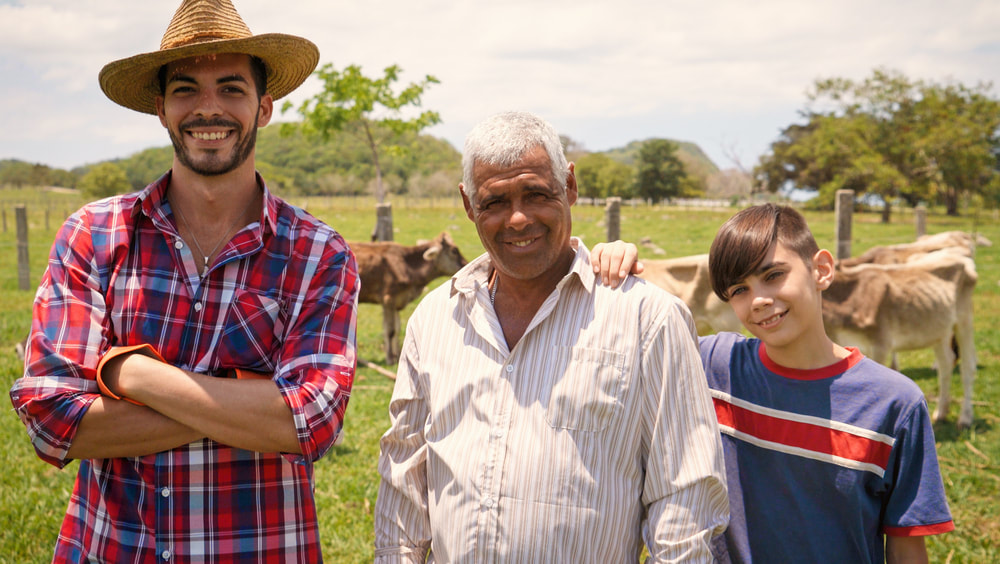
INSTITUTE PROGRAMS IN PUERTO RICO SERVE AGRICULTURE AND SENIORS
March, 2023 -- The Hispanic-American Institute (HAI) in Puerto Rico now operates two projects promoting community agriculture and four self-help projects involving senior citizens. This is a result of the Institute's initiative to support the Island after a succession of challenges beginning in 2017 that include Hurricane María, Covid, a 2020 earthquake, another hurricane in 2022, as well as twenty years of economic hardship.
The Institute now has a permanent office in San Juan, six full time employees, and several contractors, and is contributing an estimated $3 million per year in economic activity to the Island.
The Institute operates two agriculture-related programs, an Urban Agriculture and Innovative Production project that establishes community produce gardens in northwest Puerto Rico and helps farmers implement climate-resistant agriculture practices, and an Underserved and Veteran Farmers and Ranchers program that helps local farmers access USDA programs and services.
HAI operates the Senior Medicare Patrol Program Island-wide, helping Medicare and Medicaid beneficiaries to protect themselves against fraud and abuse by health care providers. The project has reached over a quarter million Puerto Ricans directly and through newspapers, radio, television, and electronic media.
The Institute also runs Americorps Seniors projects in southeast Puerto Rico. The Retired and Senior Volunteer Program involves volunteers age 55 and up in preparing for and responding to natural disasters such as the hurricanes that periodically strike the Island. The Senior Companion Program pairs vetted volunteers with the elderly to help them lead active lives at home as long as possible.
March, 2023 -- The Hispanic-American Institute (HAI) in Puerto Rico now operates two projects promoting community agriculture and four self-help projects involving senior citizens. This is a result of the Institute's initiative to support the Island after a succession of challenges beginning in 2017 that include Hurricane María, Covid, a 2020 earthquake, another hurricane in 2022, as well as twenty years of economic hardship.
The Institute now has a permanent office in San Juan, six full time employees, and several contractors, and is contributing an estimated $3 million per year in economic activity to the Island.
The Institute operates two agriculture-related programs, an Urban Agriculture and Innovative Production project that establishes community produce gardens in northwest Puerto Rico and helps farmers implement climate-resistant agriculture practices, and an Underserved and Veteran Farmers and Ranchers program that helps local farmers access USDA programs and services.
HAI operates the Senior Medicare Patrol Program Island-wide, helping Medicare and Medicaid beneficiaries to protect themselves against fraud and abuse by health care providers. The project has reached over a quarter million Puerto Ricans directly and through newspapers, radio, television, and electronic media.
The Institute also runs Americorps Seniors projects in southeast Puerto Rico. The Retired and Senior Volunteer Program involves volunteers age 55 and up in preparing for and responding to natural disasters such as the hurricanes that periodically strike the Island. The Senior Companion Program pairs vetted volunteers with the elderly to help them lead active lives at home as long as possible.
Institute Offers Business Training and Technical Assistance in East Boston, CHELSEA
and SpringfielD, MASSACHUSETTS
Community Empowerment and
Reinvestment Grant Program
Aug 2022 -- The Hispanic-American Institute (HAI) is offering training and one-on-one assistance to small and Latino businesses in East Boston, Chelsea, and Springfield to help improve their operations and administration.
The assistance is provided in English and Spanish and is free of charge to eligible participants. Training help is provided for record keeping, marketing, taxes, English for entrepreneurs, and other key areas of business operations. The Institute provides assistance directly and through partners including the Chelsea Chamber of Commerce.
Assistance is provided with support from the Community Empowerment and Reinvestment Grant Program of the MA Executive Office of Housing and Economic Development.
The assistance is provided in English and Spanish and is free of charge to eligible participants. Training help is provided for record keeping, marketing, taxes, English for entrepreneurs, and other key areas of business operations. The Institute provides assistance directly and through partners including the Chelsea Chamber of Commerce.
Assistance is provided with support from the Community Empowerment and Reinvestment Grant Program of the MA Executive Office of Housing and Economic Development.
INSTITUTO OFRECE ADIESTRAMIENTO Y ASESORAMIENTO
A EMPRESARIOS EN EAST BOSTON, CHELSEA, Y SPRINGFIELD
El Instituto Hispano-Americano ofrece adiestramiento y asesoramiento a empresarios en las ciudades de East Boston, Chelsea, y Springfrield para ayudarles a mejorar sus operaciones y funciones administrativas.
La ayuda se ofrece en horarios y localizaciones convenientes a los empresarios y es libre de costo. Temas que trata el programa incluyen contabilidad financiera, impuestos, permisos, e ingles para negocios. Los adiestramientos los lleva a cabo el Instituto y sus socios, incluyendo la Camara de Comercio de Chelsea.
El programa es auspiciado por MA Executive Office of Housing and Economic Development.
For more information contact Nader Acevedo, Executive Vice President, in Boston at [email protected] and tel. (617) 637-6403.
Para mas informacion comunicarse a Nader Acevedo, Vice Presidente Ejecutivo, a [email protected] y tel. (617) 637-6403.
La ayuda se ofrece en horarios y localizaciones convenientes a los empresarios y es libre de costo. Temas que trata el programa incluyen contabilidad financiera, impuestos, permisos, e ingles para negocios. Los adiestramientos los lleva a cabo el Instituto y sus socios, incluyendo la Camara de Comercio de Chelsea.
El programa es auspiciado por MA Executive Office of Housing and Economic Development.
For more information contact Nader Acevedo, Executive Vice President, in Boston at [email protected] and tel. (617) 637-6403.
Para mas informacion comunicarse a Nader Acevedo, Vice Presidente Ejecutivo, a [email protected] y tel. (617) 637-6403.
INSTITUTE HELPS
WESTERN MASSACHUSETTS
SMALL AND LATINO BUSINESSES
Ribbon Cutting at Springfield office June 2: l-r:
Massachusetts Office of Housingand Economic Development (MOHED) Assistant Secretary Juan Vega,
State Representative Carlos Gonzalez, HAI Treasurer Alberto Calvo HAI Project Manager John Perez, Springfield Mayor Domenic Sarno,
MGM Springfield President Chris Kelley, MOHED Secretary Mike Kennealy, Senator Adam Gomez, Samalid Hogan.
Training and Technical Assistance
Provided by Bilingual Advisors
June 2022 -- The Hispanic-American Institute (HAI) has opened an office in Springfield to provide training and technical assistance to small and Latino entrepreneurs seeking to start and expand businesses in the region. HAI also has an office in Boston.
The Institute's new office is located at 1350 Main Street, Suite 1508, and is headed by HAI Project Manager John D. Perez, Sr.
The new office is collaborating with the Massachusetts Executive Office of Housing and Economic Development (MOHED) to help create jobs and businesses in the area. HAI collaborates with key stakeholders and experts to help small and Latino businesses in Massachusetts participate in contract opportunities, including the Infrastructure Investment and Jobs Act enacted by Congress and signed by President Joe Biden.
The ribbon cutting for the new HAI office was done by Springfield Mayor Domenic Sarno and attended by MOHED Secretary Mike Kennealy, Assistant Secretary Juan Vega, Senator Adam Gomez, Representative Adam Gomez, and MGM Springfield President Chris Kelley.
The Institute is conducting a series of online workshops as well as hands-on training to help local contractors and job seekers get ready for new opportunities.
The Institute's statewide "A Team", led by Executive Vice President Nader Acevedo, has been assisting small businesses grow and adapt to present day challenges, with support from the Massachusetts Growth Capital Corporation, the Executive Office of Housing and Economic Development, the Massachusetts District Office of the U.S. Small Business Administration, Eastern Bank, the Tufts Health Plan Foundation, Encore Boston Harbor and other stakeholders.
The "A Team" is already active in the Gateway Cities of Boston, Chelsea, Lynn, Salem, Peabody, Revere, Lawrence, Lowell, Brockton, and Springfield.
For more information contact Nader Acevedo, Executive Vice President, at [email protected] and tel. (617) 637-6403.
The Institute's new office is located at 1350 Main Street, Suite 1508, and is headed by HAI Project Manager John D. Perez, Sr.
The new office is collaborating with the Massachusetts Executive Office of Housing and Economic Development (MOHED) to help create jobs and businesses in the area. HAI collaborates with key stakeholders and experts to help small and Latino businesses in Massachusetts participate in contract opportunities, including the Infrastructure Investment and Jobs Act enacted by Congress and signed by President Joe Biden.
The ribbon cutting for the new HAI office was done by Springfield Mayor Domenic Sarno and attended by MOHED Secretary Mike Kennealy, Assistant Secretary Juan Vega, Senator Adam Gomez, Representative Adam Gomez, and MGM Springfield President Chris Kelley.
The Institute is conducting a series of online workshops as well as hands-on training to help local contractors and job seekers get ready for new opportunities.
The Institute's statewide "A Team", led by Executive Vice President Nader Acevedo, has been assisting small businesses grow and adapt to present day challenges, with support from the Massachusetts Growth Capital Corporation, the Executive Office of Housing and Economic Development, the Massachusetts District Office of the U.S. Small Business Administration, Eastern Bank, the Tufts Health Plan Foundation, Encore Boston Harbor and other stakeholders.
The "A Team" is already active in the Gateway Cities of Boston, Chelsea, Lynn, Salem, Peabody, Revere, Lawrence, Lowell, Brockton, and Springfield.
For more information contact Nader Acevedo, Executive Vice President, at [email protected] and tel. (617) 637-6403.
INSTITUTO AYUDA EMPRESAS PEQUEÑAS Y LATINAS
DEL OESTE DE MASSACHUSETTS
CORTE DE CINTA EN LA OFICINA DE SPRINGFIELD EL 2 DE JUNIO: I-D:OFICINA DE VIVIENDA Y DESARROLLO ECONÓMICO DE MASSACHUSETTS MOHED) SUBSECRETARIO JUAN VEGA, REPRESENTANTE ESTATAL CARLOS GONZALEZ, HAI TESORERO ALBERTO CALVO HAI GERENTE DE PROYECTO JOHN PEREZ, ALCALDE DE SPRINGFIELD DOMENIC SARNO, MGM SPRINGFIELD PRESIDENTE CHRIS KELLEY, MOHED SECRETARIO MIKE KENNEALY, SENADOR ADAM GOMEZ, SAMALID HOGAN.
CAPACITACIÓN Y ASISTENCIA TÉCNICA
PROPORCIONADO POR ASESORES BILINGÜES
El Instituto Hispanoamericano (HAI) brinda capacitación y asistencia técnica a pequeños empresarios latinos que buscan iniciar y expandir negocios en la región oeste de Massachusetts. HAI también tiene una oficina en Boston.
La nueva iniciativa colabora con la Oficina Ejecutiva de Vivienda y Desarrollo Económico de Massachusetts (MOHED) para ayudar a crear empleos y negocios en el área. HAI colabora con partes interesadas y expertos clave para ayudar a las empresas pequeñas y latinas en Massachusetts a participar en oportunidades de contratos, incluida la Ley de Inversión en Infraestructura y Empleos promulgada por el Congreso y firmada por el presidente Joe Biden.
El corte de cinta de la nueva oficina de HAI estuvo a cargo del alcalde de Springfield, Domenic Sarno, y asistieron el secretario del MOHED, Mike Kennealy, el subsecretario, Juan Vega, el senador Adam Gomez, el representante Adam Gomez y el presidente de MGM Springfield, Chris Kelley.
El Instituto está realizando una serie de talleres en línea, así como capacitación práctica para ayudar a los contratistas locales y a las personas que buscan trabajo a prepararse para nuevas oportunidades.
El "Equipo A" estatal del Instituto, dirigido por el vicepresidente ejecutivo Nader Acevedo, ha estado ayudando a las pequeñas empresas a crecer y adaptarse a los desafíos actuales, con el apoyo de Massachusetts Growth Capital Corporation, la Oficina Ejecutiva de Vivienda y Desarrollo Económico, el Distrito de Massachusetts Oficina de la Administración de Pequeñas Empresas de EE. UU., Eastern Bank, Tufts Health Plan Foundation, Encore Boston Harbor y otras partes interesadas.
El "Equipo A" ya está activo en las ciudades Gateway de Boston, Chelsea, Lynn, Salem, Peabody, Revere, Lawrence, Lowell, Brockton y Springfield.
Para mayor información contacte a Nader Acevedo, Vicepresidente Ejecutivo, en [email protected] y tel. (617) 637-6403.
La nueva iniciativa colabora con la Oficina Ejecutiva de Vivienda y Desarrollo Económico de Massachusetts (MOHED) para ayudar a crear empleos y negocios en el área. HAI colabora con partes interesadas y expertos clave para ayudar a las empresas pequeñas y latinas en Massachusetts a participar en oportunidades de contratos, incluida la Ley de Inversión en Infraestructura y Empleos promulgada por el Congreso y firmada por el presidente Joe Biden.
El corte de cinta de la nueva oficina de HAI estuvo a cargo del alcalde de Springfield, Domenic Sarno, y asistieron el secretario del MOHED, Mike Kennealy, el subsecretario, Juan Vega, el senador Adam Gomez, el representante Adam Gomez y el presidente de MGM Springfield, Chris Kelley.
El Instituto está realizando una serie de talleres en línea, así como capacitación práctica para ayudar a los contratistas locales y a las personas que buscan trabajo a prepararse para nuevas oportunidades.
El "Equipo A" estatal del Instituto, dirigido por el vicepresidente ejecutivo Nader Acevedo, ha estado ayudando a las pequeñas empresas a crecer y adaptarse a los desafíos actuales, con el apoyo de Massachusetts Growth Capital Corporation, la Oficina Ejecutiva de Vivienda y Desarrollo Económico, el Distrito de Massachusetts Oficina de la Administración de Pequeñas Empresas de EE. UU., Eastern Bank, Tufts Health Plan Foundation, Encore Boston Harbor y otras partes interesadas.
El "Equipo A" ya está activo en las ciudades Gateway de Boston, Chelsea, Lynn, Salem, Peabody, Revere, Lawrence, Lowell, Brockton y Springfield.
Para mayor información contacte a Nader Acevedo, Vicepresidente Ejecutivo, en [email protected] y tel. (617) 637-6403.
El Español, Lengua Internacional:
Proyección y EconomíA
Evento Virtual en Vivo Mayo 23
El español es el segundo idioma más hablado en el mundo, con más de 500 millones de parlantes nativos.
El español es el idioma oficial en 21 países. México es actualmente el país de habla hispana más grande, con más de 120 millones de hispanohablantes. Hoy en día, Estados Unidos tiene la quinta población de habla hispana más grande del mundo.
Según Logohut.com, en los últimos años el uso del español en línea ha aumentado un 800%, lo que lo convierte en el tercer idioma más utilizado en Internet, detrás del mandarín y el inglés.
Se estima que 18 millones de estudiantes están actualmente estudiando español como lengua extranjera.
Muchas empresas y organizaciones internacionales, incluida la ONU, han adoptado el español como uno de sus idiomas oficiales. El español se está convirtiendo en un idioma fundamental para el mercado económico mundial.
El Instituto Hispano-Americano se ha asociado con la Universidad Nebrija en España, la Institución Universitaria de Envigado en Colombia y la Universidad de Heildelberg en Alemania para examinar las implicaciones económicas y sociales del español como un importante medio de comunicación ahora y en el futuro.
El Dr. Héctor Álvarez Mella, hispanista de la Universidad de Heildelberg, presentará una conferencia en vivo y en línea de 45 minutos con discusión sobre el tema Español, Idioma Internacional: Proyección y Economía, el lunes 23 de mayo a las 8 PM hora de España, 2:00 PM hora del Este de EE. UU. y Puerto Rico. 3:00 hora de México y Colombia, y 12:00 mediodía hora de la zona Montaña de los Estados Unidos. La charla se ofrecerá en español.
El español es el idioma oficial en 21 países. México es actualmente el país de habla hispana más grande, con más de 120 millones de hispanohablantes. Hoy en día, Estados Unidos tiene la quinta población de habla hispana más grande del mundo.
Según Logohut.com, en los últimos años el uso del español en línea ha aumentado un 800%, lo que lo convierte en el tercer idioma más utilizado en Internet, detrás del mandarín y el inglés.
Se estima que 18 millones de estudiantes están actualmente estudiando español como lengua extranjera.
Muchas empresas y organizaciones internacionales, incluida la ONU, han adoptado el español como uno de sus idiomas oficiales. El español se está convirtiendo en un idioma fundamental para el mercado económico mundial.
El Instituto Hispano-Americano se ha asociado con la Universidad Nebrija en España, la Institución Universitaria de Envigado en Colombia y la Universidad de Heildelberg en Alemania para examinar las implicaciones económicas y sociales del español como un importante medio de comunicación ahora y en el futuro.
El Dr. Héctor Álvarez Mella, hispanista de la Universidad de Heildelberg, presentará una conferencia en vivo y en línea de 45 minutos con discusión sobre el tema Español, Idioma Internacional: Proyección y Economía, el lunes 23 de mayo a las 8 PM hora de España, 2:00 PM hora del Este de EE. UU. y Puerto Rico. 3:00 hora de México y Colombia, y 12:00 mediodía hora de la zona Montaña de los Estados Unidos. La charla se ofrecerá en español.
Dr, Hector Alvarez Mella
Heidelberg University
Spanish, an International Language: Projections and Economy
LIVE WEB EVENT MAY 23
Spanish is the second most widely spoken language in the world, with over 500 million native speakers.
Spanish is the official language to 21 countries. Mexico is currently the largest Spanish-speaking country globally, with more than 120 million Spanish speakers. Today United States has the world’s fifth-largest Spanish-speaking population.
According to Logohut.com, in recent years use of Spanish online has risen by 800%, bringing it to the 3rd most widespread language on the internet behind Mandarin and English.
An estimated 18 million students are currently studying Spanish as a foreign language
Many international companies and organizations, including the U.N., have adopted Spanish as one of their official languages. Spanish is becoming a critical language for the global economic market.
The Hispanic-American Institute has joined with Universidad Nebrija in Spain, Institución Universitaria de Envigado in Colombia, and Heildelberg University in Germany to examine the economic and social implications of Spanish as a major means of communication now and in the future.
Dr. Hector Alvarez Mella, a Hispanist at Heildelberg University, will present a live 45 minute online lecture with discussion on the subject Spanish. International Language: Projection and Economy, on Monday, May 23 at 8 PM Spain time, 2 PM U.S. Eastern and Puerto Rico time, 1 PM Mexico and Colombia time, and 12 Noon U.S. Mountain time. The talk will be given in Spanish.
Spanish is the official language to 21 countries. Mexico is currently the largest Spanish-speaking country globally, with more than 120 million Spanish speakers. Today United States has the world’s fifth-largest Spanish-speaking population.
According to Logohut.com, in recent years use of Spanish online has risen by 800%, bringing it to the 3rd most widespread language on the internet behind Mandarin and English.
An estimated 18 million students are currently studying Spanish as a foreign language
Many international companies and organizations, including the U.N., have adopted Spanish as one of their official languages. Spanish is becoming a critical language for the global economic market.
The Hispanic-American Institute has joined with Universidad Nebrija in Spain, Institución Universitaria de Envigado in Colombia, and Heildelberg University in Germany to examine the economic and social implications of Spanish as a major means of communication now and in the future.
Dr. Hector Alvarez Mella, a Hispanist at Heildelberg University, will present a live 45 minute online lecture with discussion on the subject Spanish. International Language: Projection and Economy, on Monday, May 23 at 8 PM Spain time, 2 PM U.S. Eastern and Puerto Rico time, 1 PM Mexico and Colombia time, and 12 Noon U.S. Mountain time. The talk will be given in Spanish.
HAI Offers Small Business Training and Hands-On Help in Gateway Cities
March, 2022 ---The Hispanic-American Institute (HAI) is providing training and personalized technical assistance to small, Latino, woman-owned and minority businesses to help them adapt to new business practices, grow their bottom line, and prepare for new opportunities including the $9 billion in contracts and jobs coming to Massachusetts under the Infrastructure Investment and Jobs Act.
The Institute has assembled a team of bilingual experts in key areas of business operations to provide group instruction and one-on-one assistance in person and via Zoom. In this effort HAI has enlisted the help of the East Boston Chamber of Commerce, the Chelsea Chamber of Commerce, and Springfield Technical Community College.
Assistance is provided free of charge to business operators under Community Empowerment and Reinvestment grants from the Massachusetts Executive Office of Housing and Economic Development.
Subjects to be covered include the Surety Bond Guarantee Program of the U.S. Small Business Administration.
Please click here to submit a preliminary application to receive assistance.
For more information and program registration please contact Project Manager John D. Perez at [email protected] and tel. (413) 248-6599, or Executive Vice President Nader Acevedo at [email protected] and tel. (617) 637-6403.
The Institute has assembled a team of bilingual experts in key areas of business operations to provide group instruction and one-on-one assistance in person and via Zoom. In this effort HAI has enlisted the help of the East Boston Chamber of Commerce, the Chelsea Chamber of Commerce, and Springfield Technical Community College.
Assistance is provided free of charge to business operators under Community Empowerment and Reinvestment grants from the Massachusetts Executive Office of Housing and Economic Development.
Subjects to be covered include the Surety Bond Guarantee Program of the U.S. Small Business Administration.
Please click here to submit a preliminary application to receive assistance.
For more information and program registration please contact Project Manager John D. Perez at [email protected] and tel. (413) 248-6599, or Executive Vice President Nader Acevedo at [email protected] and tel. (617) 637-6403.
Instituto Hispano-Americano Provee Adiestramiento y Tutoría a Pequeñas Empresas
El Instituto Hispano-Americano (HAI) proveerá adiestramiento y tutoría individual a empresas pequeñas, Latinas y minoritarias para ayudarles a adaptarse a nuevas practicas de negocio, mejorar sus ganancias, y prepararse para aprovechar nuevas oportunidades, como las que se presentan bajo el Acta de Inversion en Infraestructura y Empleos, que trae a Massachusetts $9 billones en trabajos y contratos.
El Instituto ha reunido un equipo de expertos bilingües en areas claves de operaciones de negocios, el cual provee instrucción a grupos e individuos en persona y mediante Zoom. En esta iniciativa HAI cuenta con la colaboración de la Cámara de Comercio de East Boston, la Cámara de Comercio de Chelsea, y Springfield Technical Community College.
El adiestramiento y tutoría se ofrecen libre de costo a los empresarios bajo subvenciones al Instituto de la Oficina Ejecutiva de Vivienda y Desarrollo Economico de Massachusetts.
Haga clic aquí para solicitar ayuda.
Para mas información y matricularse en el programa favor comunicarse al Gerente de Proyecto John D. Perez a [email protected] y tel. (413) 248-6599, o al Vice Presidente Ejecutivo Nader Acevedo a [email protected] y tel. (617) 637-6403.
El Instituto ha reunido un equipo de expertos bilingües en areas claves de operaciones de negocios, el cual provee instrucción a grupos e individuos en persona y mediante Zoom. En esta iniciativa HAI cuenta con la colaboración de la Cámara de Comercio de East Boston, la Cámara de Comercio de Chelsea, y Springfield Technical Community College.
El adiestramiento y tutoría se ofrecen libre de costo a los empresarios bajo subvenciones al Instituto de la Oficina Ejecutiva de Vivienda y Desarrollo Economico de Massachusetts.
Haga clic aquí para solicitar ayuda.
Para mas información y matricularse en el programa favor comunicarse al Gerente de Proyecto John D. Perez a [email protected] y tel. (413) 248-6599, o al Vice Presidente Ejecutivo Nader Acevedo a [email protected] y tel. (617) 637-6403.
INSTITUTE LEADS THE WAY FOR LATINO AND MASSACHUSETTS GATEWAY CITY BUSINESSES DURING THE COVID PANDEMIC
HAS HELD TWENTY EIGHT VIRTUAL EVENTS
INVOLVING COMMUNITY, BUSINESS, AND
GOVERNMENT LEADERS STATEWIDE
COMPILED STUDY OF COVID IMPACT
ON LATINO COMMUNITIES AND BUSINESSES
IN MA GATEWAY CITIES
-----------
July, 2021 --- THE HISPANIC-AMERICAN INSTITUTE HAS HELD TWENTY EIGHT CONSECUTIVE ZOOM EVENTS SINCE MARCH 2020, IN AN UNPRECEDENTED CAMPAIGN TO HELP BUSINESSES IN THE LATINO COMMUNITIES AND GATEWAY CITIES OF MASSACHUSETTS ADDRESS THE CHALLENGES OF THE COVID PANDEMIC. OVER NINE HUNDRED PARTICIPANTS HAVE TAKEN PART IN THESE VIRTUAL EVENTS, WHICH HAVE SERVED AS A LIFELINE OF ADVICE AND FINANCIAL AND MANAGEMENT ASSISTANCE TO BUSINESSES STATEWIDE. THE EVENTS HAVE BEEN CONDUCTED IN ENGLISH AND SPANISH AND HAVE BEEN FREE OF CHARGE TO PARTICIPANTS.
THE INSTITUTE ASSEMBLED AN OUTSTANDING TEAM OF BUSINESS ADVISORS WHO HAVE WORKED TIRELESSLY TO HELP SECURE FINANCIAL AND MANAGEMENT ASSISTANCE FOR THE SMALL BUSINESSES, WHICH ARE THE BACKBONE OF THE MASSACHUSETTS GATEWAY CITIES.
"OUR TEAM OF BILINGUAL BUSINESS ADVISORS HAVE OFFERED HANDS-ON ASSISTANCE IN SAVING, OPERATING, AND GROWING SMALL BUSINESSES DURING THE PANDEMIC" SAID NADER ACEVEDO, INSTITUTE EXECUTIVE VICE PRESIDENT, WHO HAS LED THE THURSDAY MORNING ZOOMS FOR THE LAST SIXTEEN MONTHS.
THE INSTITUTE'S EFFORT HAS BEEN SUPPORTED BY LEADERS IN INDUSTRY, GOVERNMENT, AND THE NONPROFIT SECTOR, INCLUDING EASTERN BANK, TUFTS HEALTH PLAN, THE MASSACHUSETTS GROWTH CAPITAL CORPORATION, THE MA OFFICE OF HOUSING AND ECONOMIC DEVELOPMENT, AND THE U.S. SMALL BUSINESS ADMINISTRATION. PARTICIPANTS AND PRESENTERS IN THE VIRTUAL EVENTS HAVE INCLUDED A WIDE RANGE OF EXPERTS IN SMALL BUSINESS OPERATIONS.
ALONG WITH THE ZOOMS, THE INSTITUTE TEAM HAS PROVIDED ONE-ON-ONE HELP WITH APPLICATIONS FOR FINANCIAL ASSISTANCE INCLUDING THE PAYROLL PROTECTION PROGRAM (PPP) AND THE ECONOMIC INJURY DISASTER LOAN (EIDL), AS WELL AS WITH OPERATIONAL STEPS SUCH AS HELPING RESTAURANTS AND RETAILERS WITH SAFETY PROTOCOLS, ONLINE ORDERING, AND DELIVERY SERVICES.
ALSO DURING THIS TRYING TIME INSTITUTE TREASURER ALBERTO CALVO AUTHORED AN IMPORTANT STUDY ON THE IMPACT OF THE PANDEMIC ON THE LATINO COMMUNITIES, TITLED INSIGHTS OF COVID 19 IMPACTS ON THE LATINO COMMUNITIES AND BUSINESSES IN MASSACHUSETTS GATEWAY CITIES.
THE INSTITUTE ASSEMBLED AN OUTSTANDING TEAM OF BUSINESS ADVISORS WHO HAVE WORKED TIRELESSLY TO HELP SECURE FINANCIAL AND MANAGEMENT ASSISTANCE FOR THE SMALL BUSINESSES, WHICH ARE THE BACKBONE OF THE MASSACHUSETTS GATEWAY CITIES.
"OUR TEAM OF BILINGUAL BUSINESS ADVISORS HAVE OFFERED HANDS-ON ASSISTANCE IN SAVING, OPERATING, AND GROWING SMALL BUSINESSES DURING THE PANDEMIC" SAID NADER ACEVEDO, INSTITUTE EXECUTIVE VICE PRESIDENT, WHO HAS LED THE THURSDAY MORNING ZOOMS FOR THE LAST SIXTEEN MONTHS.
THE INSTITUTE'S EFFORT HAS BEEN SUPPORTED BY LEADERS IN INDUSTRY, GOVERNMENT, AND THE NONPROFIT SECTOR, INCLUDING EASTERN BANK, TUFTS HEALTH PLAN, THE MASSACHUSETTS GROWTH CAPITAL CORPORATION, THE MA OFFICE OF HOUSING AND ECONOMIC DEVELOPMENT, AND THE U.S. SMALL BUSINESS ADMINISTRATION. PARTICIPANTS AND PRESENTERS IN THE VIRTUAL EVENTS HAVE INCLUDED A WIDE RANGE OF EXPERTS IN SMALL BUSINESS OPERATIONS.
ALONG WITH THE ZOOMS, THE INSTITUTE TEAM HAS PROVIDED ONE-ON-ONE HELP WITH APPLICATIONS FOR FINANCIAL ASSISTANCE INCLUDING THE PAYROLL PROTECTION PROGRAM (PPP) AND THE ECONOMIC INJURY DISASTER LOAN (EIDL), AS WELL AS WITH OPERATIONAL STEPS SUCH AS HELPING RESTAURANTS AND RETAILERS WITH SAFETY PROTOCOLS, ONLINE ORDERING, AND DELIVERY SERVICES.
ALSO DURING THIS TRYING TIME INSTITUTE TREASURER ALBERTO CALVO AUTHORED AN IMPORTANT STUDY ON THE IMPACT OF THE PANDEMIC ON THE LATINO COMMUNITIES, TITLED INSIGHTS OF COVID 19 IMPACTS ON THE LATINO COMMUNITIES AND BUSINESSES IN MASSACHUSETTS GATEWAY CITIES.
EL INSTITUTO SIRVE DE GUIA A LAS EMPRESAS LATINAS Y EN LAS CIUDADES DE ENTRADA DURANTE LA PANDEMIA DEL COVID
LLEVA A CABO VEINTIOCHO EVENTOS VIRTUALES
ENVOLVIENDO LIDERES DE LA COMUNIDAD, EMPRESA, Y
GOBIERNO A NIVEL DE TODO EL ESTADO DE MASSACHUSETTS
-----------
EL INSTITUTO HISPANO-AMERICANO HA LLEVADO A CABO VEINTIOCHO EVENTOS VIRTUALES ZOOM CONSECUTIVOS DESDE MARZO 2020, COMO PARTE DE LA CAMPAÑA SIN PRECEDENTES PARA AYUDAR A LAS EMPRESAS EN COMUNIDADES LATINAS Y CIUDADES DE ENTRADA DE MASSACHUSETTS A RESOLVER LAS DIFICULTADES CAUSADAS POR LA PANDEMIA DEL COVID.A MAS DE NOVECIENTOS PARTICIPANTES A NIVEL ESTATAL FORMARON PARTE DE LOS EVENTOS VIRTUALES, QUE HAN SERVIDO COMO UNA FUENTE DE CONSEJOS Y AYUDA FINANCIERA Y GERENCIAL A LAS EMPRESAS. ESTOS EVENTOS VIRTUALES SE HAN LLEVADO A CABO TANTO EN ESPAÑOL COMO INGLES Y HAN SIDO LIBRE DE COSTO A LOS PARTICIPANTES.
EL INSTITUTO HA REUNIDO UN EQUIPO DE ASESORES SOBRESALIENTES, QUE HAN TRABAJADO INCANSABLEMENTE PARA ASEGURAR ASISTENCIA FINANCIERA Y ADMINISTRATIVA A PEQUEÑAS EMPRESAS QUE SON EL PILAR DE CIUDADES DE ENTRADA MASSACHUSETTS.
“NUESTRO EQUIPO DE ASESORES BILINGÜES OFRECEN ASISTENCIA VALIOSA EN FINANCIAMIENTO, OPERACIONES, Y CRECIMIENTO DE PEQUEÑAS EMPRESAS DURANTE LA PANDEMIA” ASÍ LO EXPRESA NADER ACEVEDO, VICEPRESIDENTE EJECUTIVO DEL INSTITUTO, QUIEN DIRIGE LOS EVENTOS VIRTUALES ZOOM POR LOS PASADOS DIECISÉIS MESES.
LOS ESFUERZOS DEL INSTITUTO HAN SIDO APOYADO POR LIDERES DE LA INDUSTRIA, GOBIERNO, SECTORES SIN FINES DE LUCRO, INCLUYENDO EL EASTERN BANK, TUFTS HEALTH PLAN, EL MASSACHUSETTS GROWTH CAPITAL CORPORATION, EL MA OFFICE OF HOUSING AND ECONOMIC DEVELOPMENT, Y EL U.S. SMALL BUSINESS ADMINISTRATION. PARTICIPANTES Y PRESENTADORES EN ESTOS EVENTOS VIRTUALES HAN INCLUIDO UNA AMPLIA GAMA DE EXPERTOS EN LA OPERACIÓN DE PEQUEÑOS NEGOCIOS.
EN CONJUNTO CON LOS EVENTOS VIRTUALES ZOOM, EL GRUPO DEL INSTITUTO HA PROVISTO AYUDA MANO A MANO CON LAS SOLICITUDES DE ASISTENCIA FINANCIERA, QUE INCLUYEN PROTECCIÓN DE NOMINA BAJO EL PROGRAMA PAYROLL PROTECTION PROGRAM (PPP) Y EL PRÉSTAMO PARA ECONOMÍAS POR DESASTRE (EIDL) AL IGUAL QUE HA TOMADO PASOS OPERACIONALES COMO AYUDAR A RESTAURANTES, TIENDAS DE VENTA AL DETAL, CON PROTOCOLOS DE SALUD, ORDENES EN LÍNEA Y SERVICIOS DE ENTREGA.
DURANTE ESTE PERIODO ADEMAS EL TESORERO DEL INSTITUTO, ALBERTO CALVO, COMPUSO UN IMPORTANTE ESTUDIO DEL IMAPCTO DE COVID EN LA COMUNIDAD LATINA, TITULADO INSIGHTS OF COVID 19 ON THE LATINO COMMUNITY AND BUSINESSES IN MASSACHUSETTS GATEWAY CITIES.
EL INSTITUTO HA REUNIDO UN EQUIPO DE ASESORES SOBRESALIENTES, QUE HAN TRABAJADO INCANSABLEMENTE PARA ASEGURAR ASISTENCIA FINANCIERA Y ADMINISTRATIVA A PEQUEÑAS EMPRESAS QUE SON EL PILAR DE CIUDADES DE ENTRADA MASSACHUSETTS.
“NUESTRO EQUIPO DE ASESORES BILINGÜES OFRECEN ASISTENCIA VALIOSA EN FINANCIAMIENTO, OPERACIONES, Y CRECIMIENTO DE PEQUEÑAS EMPRESAS DURANTE LA PANDEMIA” ASÍ LO EXPRESA NADER ACEVEDO, VICEPRESIDENTE EJECUTIVO DEL INSTITUTO, QUIEN DIRIGE LOS EVENTOS VIRTUALES ZOOM POR LOS PASADOS DIECISÉIS MESES.
LOS ESFUERZOS DEL INSTITUTO HAN SIDO APOYADO POR LIDERES DE LA INDUSTRIA, GOBIERNO, SECTORES SIN FINES DE LUCRO, INCLUYENDO EL EASTERN BANK, TUFTS HEALTH PLAN, EL MASSACHUSETTS GROWTH CAPITAL CORPORATION, EL MA OFFICE OF HOUSING AND ECONOMIC DEVELOPMENT, Y EL U.S. SMALL BUSINESS ADMINISTRATION. PARTICIPANTES Y PRESENTADORES EN ESTOS EVENTOS VIRTUALES HAN INCLUIDO UNA AMPLIA GAMA DE EXPERTOS EN LA OPERACIÓN DE PEQUEÑOS NEGOCIOS.
EN CONJUNTO CON LOS EVENTOS VIRTUALES ZOOM, EL GRUPO DEL INSTITUTO HA PROVISTO AYUDA MANO A MANO CON LAS SOLICITUDES DE ASISTENCIA FINANCIERA, QUE INCLUYEN PROTECCIÓN DE NOMINA BAJO EL PROGRAMA PAYROLL PROTECTION PROGRAM (PPP) Y EL PRÉSTAMO PARA ECONOMÍAS POR DESASTRE (EIDL) AL IGUAL QUE HA TOMADO PASOS OPERACIONALES COMO AYUDAR A RESTAURANTES, TIENDAS DE VENTA AL DETAL, CON PROTOCOLOS DE SALUD, ORDENES EN LÍNEA Y SERVICIOS DE ENTREGA.
DURANTE ESTE PERIODO ADEMAS EL TESORERO DEL INSTITUTO, ALBERTO CALVO, COMPUSO UN IMPORTANTE ESTUDIO DEL IMAPCTO DE COVID EN LA COMUNIDAD LATINA, TITULADO INSIGHTS OF COVID 19 ON THE LATINO COMMUNITY AND BUSINESSES IN MASSACHUSETTS GATEWAY CITIES.
OUR LEADERS/NUESTROS LIDERES
OUR TEAM/NUESTRO EQUIPO
INSTITUTE EXPANDS SUPPORT TO SMALL BUSINESSES, FARMERS, AND ELDERLY IN MASSACHUSETTS AND PUERTO RICO
Delicious New Mexico, an initiative of the Institute and its partners, delivering local produce to area supermarkets.
Steps Up Services to Underserved Communities
May, 2021 --- The Hispanic-American Institute has expanded its services to the small business, farmer and rancher, and elderly communities in Massachusetts and Puerto Rico.
The Institute has been awarded a grant from the Massachusetts Office of Housing and Economic Development to provide support statewide to businesses impacted by Covid 19. The project complements the Institute's ongoing services funded by the Massachusetts Growth Capital Corporation. In both initiatives HAI Executive Vice President Nader Acevedo [email protected] leads a team of seasoned, bilingual business advisors including Alberto Calvo, co-owner of Stop and Compare Supermarkets in Chelsea and Lynn.
HAI also has once more been awarded a U.S. Department of Agriculture Office of Partnerships and Public Engagement grant to help farmers and ranchers in Puerto Rico access USDA programs and services. That effort is led by Blanca Rodriguez Ubriaco, MBA [email protected]
Institute services to the elderly in Puerto Rico funded by Americorps Seniors are aimed at helping that population prepare for and address natural disasters including the hurricanes, earthquakes, and pandemics such as Covid, Zika, and influenza, and at providing companionship services to homebound and other elderly residents of southeast Puerto Rico. That effort, under the name of Voluntarios del Sureste, is led by Maria Eugenia Buscaglia Morales [email protected]
The Voluntarios project complements the Institute's Senior Medicare Patrol program under the Administration for Community Living of the U.S. Department of Health and Human Services, which helps protect Medicare beneficiaries in Puerto Rico from fraud and abuse in health care services. That project is led by Ricardo Colon Padilla, CPA [email protected] and Ana Berta Vazquez Martinez, Esq. [email protected]
For more information contact the program directors above or Institute president Bruce Young Candelaria [email protected]
The Institute has been awarded a grant from the Massachusetts Office of Housing and Economic Development to provide support statewide to businesses impacted by Covid 19. The project complements the Institute's ongoing services funded by the Massachusetts Growth Capital Corporation. In both initiatives HAI Executive Vice President Nader Acevedo [email protected] leads a team of seasoned, bilingual business advisors including Alberto Calvo, co-owner of Stop and Compare Supermarkets in Chelsea and Lynn.
HAI also has once more been awarded a U.S. Department of Agriculture Office of Partnerships and Public Engagement grant to help farmers and ranchers in Puerto Rico access USDA programs and services. That effort is led by Blanca Rodriguez Ubriaco, MBA [email protected]
Institute services to the elderly in Puerto Rico funded by Americorps Seniors are aimed at helping that population prepare for and address natural disasters including the hurricanes, earthquakes, and pandemics such as Covid, Zika, and influenza, and at providing companionship services to homebound and other elderly residents of southeast Puerto Rico. That effort, under the name of Voluntarios del Sureste, is led by Maria Eugenia Buscaglia Morales [email protected]
The Voluntarios project complements the Institute's Senior Medicare Patrol program under the Administration for Community Living of the U.S. Department of Health and Human Services, which helps protect Medicare beneficiaries in Puerto Rico from fraud and abuse in health care services. That project is led by Ricardo Colon Padilla, CPA [email protected] and Ana Berta Vazquez Martinez, Esq. [email protected]
For more information contact the program directors above or Institute president Bruce Young Candelaria [email protected]
Cómo Funciona la Vacuna de Pfizer-BioNTech
Supresión de células infectadas
New York Times
Por Jonathan Corum y Carl Zimmer Jan. 21, 2021
Por Jonathan Corum y Carl Zimmer Jan. 21, 2021
La empresa alemana BioNTech se asoció con Pfizer para desarrollar y probar una vacuna contra la COVID-19 conocida como BNT162b2, con el nombre genérico tozinameran o la marca comercial Comirnaty. Un ensayo clínico demostró que la vacuna tiene una tasa de eficacia del 95 por ciento para la prevención de la enfermedad.
Un fragmento del coronavirus
El virus SARS-CoV-2 está colmado de proteínas que usa para entrar en las células humanas. Estas proteínas, llamadas de espiga, son un blanco tentador para posibles vacunas y tratamientos.
Al igual que la vacuna de Moderna, la de Pfizer-BioNTech se basa en las instrucciones genéticas del virus para armar la proteína de espiga.
ARNm dentro de una envoltura aceitosa
La vacuna usa ARN mensajero, el material genético que nuestras células leen para producir proteínas. La molécula -abreviada como ARNm- es frágil y nuestras enzimas naturales la harían pedazos si se inyectase directamente en el cuerpo. Para proteger la vacuna, Pfizer y BioNTech envuelven el ARNm en burbujas aceitosas hechas de nanopartículas de lípidos.
Debido a su fragilidad, las moléculas de ARNm se desbaratan rápidamente a temperatura ambiente. Pfizer está construyendo contenedores especiales con hielo seco, sensores térmicos y rastreadores GPS para garantizar que las vacunas puedan transportarse a -70 grados Celsius a fin de que sigan siendo viables.
Entrada a una célula
Tras la inyección, las partículas de la vacuna chocan con las células, se fusionan con ellas y liberan el ARNm. Las moléculas de la célula leen su secuencia y ensamblan proteínas de espiga. Al final, la célula destruye el ARNm de la vacuna, por lo que no queda ningún rastro permanente.
Algunas de las proteínas de espiga forman espigas que migran a la superficie de la célula y extienden sus puntas. Las células vacunadas también separan algunas de las proteínas en fragmentos que presentan en su superficie. Entonces, el sistema inmunitario puede reconocer estas espigas protuberantes y fragmentos de proteínas de espiga.
Detección del intruso
Cuando una célula vacunada muere, sus restos contienen muchas proteínas de espiga y fragmentos de proteínas que después puede recoger un tipo de célula inmunitaria llamada célula presentadora de antígenos.
La célula presenta fragmentos de la proteína espiga en su superficie. Cuando otras células llamadas linfocitos T colaboradores detectan estos fragmentos, los linfocitos T colaboradores pueden hacer sonar la alarma y ayudar a convocar a otras células inmunitarias para combatir la infección.
Creación de anticuerpos
Otras células inmunitarias, llamadas linfocitos B, podrían chocar con las espigas del coronavirus en la superficie de las células vacunadas, o con fragmentos de proteínas de espiga que estén flotando. Unos cuantos linfocitos B quizá logren adherirse a las proteínas de espiga. Después, si los linfocitos T colaboradores activan estos linfocitos B, comenzarán a proliferar y secretar anticuerpos que atacarán a la proteína espiga.
Freno al virus
Los anticuerpos pueden adherirse a las espigas del coronavirus, marcar el virus para que sea destruido y bloquear la infección al impedir que las espigas se adhieran a otras células.
Supresión de células infectadas
Las células presentadoras de antígenos también pueden activar otro tipo de célula inmunitaria llamada linfocito T citotóxico (o supresor) para que busque y destruya cualquier célula infectada de coronavirus que presente fragmentos de proteína de espiga en su superficie.
Recuerdo del virus
La vacuna de Pfizer-BioNTech requiere dos inyecciones, administradas con 21 días de diferencia, a fin de preparar el sistema inmunitario lo mejor posible para combatir el coronavirus. Sin embargo, ya que la vacuna es nueva, los investigadores no saben cuánto tiempo podría durar su protección.
Segunda dosis
21 días después
Un estudio preliminar reveló que la vacuna parece ofrecer una protección sólida unos diez días después de la primera dosis, en comparación con las personas que tomaron un placebo:
Es posible que, en los meses posteriores a la inoculación, la cantidad de anticuerpos y linfocitos T citotóxicos disminuya. No obstante, el sistema inmunitario también contiene células especiales llamadas células B y T de memoria que podrían retener información sobre el coronavirus durante años o incluso décadas.
Para más información sobre la vacuna, véase: La vacuna de Pfizer contra la covid: 11 cosas que tienes que saber.
Preparación e inyección
Cada vial de la vacuna contiene 5 dosis de 0,3 mililitros. La vacuna debe descongelarse antes de inocularse y diluirse con solución salina. El vial debe usarse dentro de las seis horas posteriores a la disolución.
Fuentes: Centro Nacional de Información de Biotecnología; Nature; Florian Krammer, Escuela de Medicina Icahn en Mount Sinai.
Un fragmento del coronavirus
El virus SARS-CoV-2 está colmado de proteínas que usa para entrar en las células humanas. Estas proteínas, llamadas de espiga, son un blanco tentador para posibles vacunas y tratamientos.
Al igual que la vacuna de Moderna, la de Pfizer-BioNTech se basa en las instrucciones genéticas del virus para armar la proteína de espiga.
ARNm dentro de una envoltura aceitosa
La vacuna usa ARN mensajero, el material genético que nuestras células leen para producir proteínas. La molécula -abreviada como ARNm- es frágil y nuestras enzimas naturales la harían pedazos si se inyectase directamente en el cuerpo. Para proteger la vacuna, Pfizer y BioNTech envuelven el ARNm en burbujas aceitosas hechas de nanopartículas de lípidos.
Debido a su fragilidad, las moléculas de ARNm se desbaratan rápidamente a temperatura ambiente. Pfizer está construyendo contenedores especiales con hielo seco, sensores térmicos y rastreadores GPS para garantizar que las vacunas puedan transportarse a -70 grados Celsius a fin de que sigan siendo viables.
Entrada a una célula
Tras la inyección, las partículas de la vacuna chocan con las células, se fusionan con ellas y liberan el ARNm. Las moléculas de la célula leen su secuencia y ensamblan proteínas de espiga. Al final, la célula destruye el ARNm de la vacuna, por lo que no queda ningún rastro permanente.
Algunas de las proteínas de espiga forman espigas que migran a la superficie de la célula y extienden sus puntas. Las células vacunadas también separan algunas de las proteínas en fragmentos que presentan en su superficie. Entonces, el sistema inmunitario puede reconocer estas espigas protuberantes y fragmentos de proteínas de espiga.
Detección del intruso
Cuando una célula vacunada muere, sus restos contienen muchas proteínas de espiga y fragmentos de proteínas que después puede recoger un tipo de célula inmunitaria llamada célula presentadora de antígenos.
La célula presenta fragmentos de la proteína espiga en su superficie. Cuando otras células llamadas linfocitos T colaboradores detectan estos fragmentos, los linfocitos T colaboradores pueden hacer sonar la alarma y ayudar a convocar a otras células inmunitarias para combatir la infección.
Creación de anticuerpos
Otras células inmunitarias, llamadas linfocitos B, podrían chocar con las espigas del coronavirus en la superficie de las células vacunadas, o con fragmentos de proteínas de espiga que estén flotando. Unos cuantos linfocitos B quizá logren adherirse a las proteínas de espiga. Después, si los linfocitos T colaboradores activan estos linfocitos B, comenzarán a proliferar y secretar anticuerpos que atacarán a la proteína espiga.
Freno al virus
Los anticuerpos pueden adherirse a las espigas del coronavirus, marcar el virus para que sea destruido y bloquear la infección al impedir que las espigas se adhieran a otras células.
Supresión de células infectadas
Las células presentadoras de antígenos también pueden activar otro tipo de célula inmunitaria llamada linfocito T citotóxico (o supresor) para que busque y destruya cualquier célula infectada de coronavirus que presente fragmentos de proteína de espiga en su superficie.
Recuerdo del virus
La vacuna de Pfizer-BioNTech requiere dos inyecciones, administradas con 21 días de diferencia, a fin de preparar el sistema inmunitario lo mejor posible para combatir el coronavirus. Sin embargo, ya que la vacuna es nueva, los investigadores no saben cuánto tiempo podría durar su protección.
Segunda dosis
21 días después
Un estudio preliminar reveló que la vacuna parece ofrecer una protección sólida unos diez días después de la primera dosis, en comparación con las personas que tomaron un placebo:
Es posible que, en los meses posteriores a la inoculación, la cantidad de anticuerpos y linfocitos T citotóxicos disminuya. No obstante, el sistema inmunitario también contiene células especiales llamadas células B y T de memoria que podrían retener información sobre el coronavirus durante años o incluso décadas.
Para más información sobre la vacuna, véase: La vacuna de Pfizer contra la covid: 11 cosas que tienes que saber.
Preparación e inyección
Cada vial de la vacuna contiene 5 dosis de 0,3 mililitros. La vacuna debe descongelarse antes de inocularse y diluirse con solución salina. El vial debe usarse dentro de las seis horas posteriores a la disolución.
Fuentes: Centro Nacional de Información de Biotecnología; Nature; Florian Krammer, Escuela de Medicina Icahn en Mount Sinai.
THE FATE OF GATEWAY CITIES IS TIED TO LATINO BUSINESSES
EL FUTURO DE LAS CIUDADES DE ENTRADA
ESTA ATADO A LOS NEGOCIOS HISPANOS

August 16, 2020 --- The HispanicAmerican Institute has just concluded a successful series of eleven Zoom meetings addressing the state of Latino businesses in Massachusetts. We have heard the stories of large and small business operators struggling to adapt and survive in the Coronavirus environment. We have also heard from government and private institutions doing their best to provide them with support.
One thing is clear: the wellbeing of Gateway Cities like Chelsea, Revere, Lynn, Lawrence, Lowell, Worcester, Holyoke and Springfield is directly tied to the survival of the Latino and small businesses serving the Hispanic community. Financing, training, and technical assistance need to be delivered effectively to help save these enterprises, many of which say that under present conditions they may have to shut down before the end of the year.
The Hispanic-American Institute and its resource partners are on the ground providing advice and support to struggling small businesses. If your business needs help, please contact Nader Acevedo, Executive Vice President, at [email protected].
One thing is clear: the wellbeing of Gateway Cities like Chelsea, Revere, Lynn, Lawrence, Lowell, Worcester, Holyoke and Springfield is directly tied to the survival of the Latino and small businesses serving the Hispanic community. Financing, training, and technical assistance need to be delivered effectively to help save these enterprises, many of which say that under present conditions they may have to shut down before the end of the year.
The Hispanic-American Institute and its resource partners are on the ground providing advice and support to struggling small businesses. If your business needs help, please contact Nader Acevedo, Executive Vice President, at [email protected].
El Instituto Hispano-Americano acaba de concluir una serie de once reuniones exitosas vía Zoom, dirigidas a atender la situación de las empresas latinas en Massachusetts. Hemos escuchado las historias tanto de los pequeños como de los grandes empresarios, tratando de adaptarse y de sobrevivir en estos tiempos del Corona Virus. De igual forma hemos escuchado lo que tienen que decir el gobierno y las instituciones privadas, sobre lo que están haciendo para proveerles ayuda a las empresas.
Una cosa ha quedado clara y es que el bienestar de Ciudades de Entrada de inmigrantes como Chelsea, Revere, Lynn, Lawrence, Lowell, Worcester, Holyoke y Springfield está directamente atado a la supervivencia de las empresas latinas y los pequeños negocios que sirven a la comunidad hispana. El financiamiento, adiestramiento y la asistencia técnica, necesitan ser provistos eficazmente para ayudar a salvar estas empresas, muchas de las cuales están bajo condiciones que pudieran llevarlas a su cierre total antes de que termine el año.
El Instituto Hispano-Americano y sus entidades aliadas estan sobre el terreno proporcionando consejería y apoyo a estas empresas que se encuentran en tan difícil situación. Si su empresa necesita ayuda, favor de contactar a Nader Acevedo, Vicepresidente Ejecutivo, a [email protected].
Una cosa ha quedado clara y es que el bienestar de Ciudades de Entrada de inmigrantes como Chelsea, Revere, Lynn, Lawrence, Lowell, Worcester, Holyoke y Springfield está directamente atado a la supervivencia de las empresas latinas y los pequeños negocios que sirven a la comunidad hispana. El financiamiento, adiestramiento y la asistencia técnica, necesitan ser provistos eficazmente para ayudar a salvar estas empresas, muchas de las cuales están bajo condiciones que pudieran llevarlas a su cierre total antes de que termine el año.
El Instituto Hispano-Americano y sus entidades aliadas estan sobre el terreno proporcionando consejería y apoyo a estas empresas que se encuentran en tan difícil situación. Si su empresa necesita ayuda, favor de contactar a Nader Acevedo, Vicepresidente Ejecutivo, a [email protected].
Institute and Puerto Rico Seniors Will help Communities Respond To Natural Disasters
March 3, 2020 --- The Hispanic-American Institute will work with volunteers and municipalities in southern Puerto Rico to help respond to natural disasters including hurricanes, earthquakes and now pandemics.
The Institute was awarded a three year, $247,500 grant by the Corporation for National and Community Service (CNCS) to recruit, train and manage a group of volunteers, ages 55+, to assist residents and officials of the Puerto Rico Municipalities of Humacao, Las Piedras, and Yabucoa in disaster response and recovery activities. The project, which will begin in April, is under the Retired and Senior Volunteer Program (RSVP) of the CNCS. The funds were awarded as part of a Senior Corps grant competition to increase the impact of national service in specific geographic areas.
The 6.4 magnitude earthquake that struck Puerto Rico at dawn on January 6 and subsequent tremors to date have inflicted continued trauma on a population that is still reeling from the 2017 Hurricane Maria disaster. The prospect of a Coronavirus pandemic extending to Puerto Rico raises additional concerns in a population already stressed by environmental and economic hardships. Puerto Rico was also affected by the spread of the Zika virus.
The Institute already operates the Senior Medicare Patrol program in Puerto Rico, helping Medicare and Medicaid beneficiaries to protect themselves from fraud and abuse by health care providers. The elderly population in Puerto Rico has grown as a result of demographic changes and out migration of working age Puerto Ricans in search of economic opportunity.
For more information about the RSVP, SMP, and other Institute initiatives in Puerto Rico, please contact HAI president Bruce Young Candelaria at [email protected].
The Institute was awarded a three year, $247,500 grant by the Corporation for National and Community Service (CNCS) to recruit, train and manage a group of volunteers, ages 55+, to assist residents and officials of the Puerto Rico Municipalities of Humacao, Las Piedras, and Yabucoa in disaster response and recovery activities. The project, which will begin in April, is under the Retired and Senior Volunteer Program (RSVP) of the CNCS. The funds were awarded as part of a Senior Corps grant competition to increase the impact of national service in specific geographic areas.
The 6.4 magnitude earthquake that struck Puerto Rico at dawn on January 6 and subsequent tremors to date have inflicted continued trauma on a population that is still reeling from the 2017 Hurricane Maria disaster. The prospect of a Coronavirus pandemic extending to Puerto Rico raises additional concerns in a population already stressed by environmental and economic hardships. Puerto Rico was also affected by the spread of the Zika virus.
The Institute already operates the Senior Medicare Patrol program in Puerto Rico, helping Medicare and Medicaid beneficiaries to protect themselves from fraud and abuse by health care providers. The elderly population in Puerto Rico has grown as a result of demographic changes and out migration of working age Puerto Ricans in search of economic opportunity.
For more information about the RSVP, SMP, and other Institute initiatives in Puerto Rico, please contact HAI president Bruce Young Candelaria at [email protected].
EDÚCATE CAMPAIGN PROMOTES COMMUNITY AWARENESS
OF DISASTER RESPONSE RESOURCES
Puerto Ricans wait out the earthquake outside their homes. photo: Carlos Giusti, AP
January 8, 2020 --- The 6.4 magnitude earthquake that struck Puerto Rico at dawn on January 6 inflicted back to back trauma on a population that is still reeling from the Hurricane Maria disaster. "No sé qué hacer" --- I don't know what to do--- is a phrase voiced by many community residents as they wait for restoration of basic services and support each other with food and shelter in time-honored Puerto Rican tradition.
The Hispanic-American Institute in Puerto Rico is expanding its community education activities to better inform residents about disaster response resources available at the local, state, and federal levels.
"As an initial step our social media will have links to an array of disaster response and recovery resources," said Ricardo Colón Padilla, Institute Vice President. The Institute is also seeking resources to hire and train community-based disaster response education personnel.
The EDÚCATE initiative builds on the Institute's existing community information activities serving Medicare beneficiaries and small farmers in Puerto Rico.
The Hispanic-American Institute (www.hainst.org) is an IRS 501(c)(3) nonprofit corporation with offices in San Juan PR, Boston MA, and Albuquerque NM. For more information please contact the Institute at [email protected].
The Hispanic-American Institute in Puerto Rico is expanding its community education activities to better inform residents about disaster response resources available at the local, state, and federal levels.
"As an initial step our social media will have links to an array of disaster response and recovery resources," said Ricardo Colón Padilla, Institute Vice President. The Institute is also seeking resources to hire and train community-based disaster response education personnel.
The EDÚCATE initiative builds on the Institute's existing community information activities serving Medicare beneficiaries and small farmers in Puerto Rico.
The Hispanic-American Institute (www.hainst.org) is an IRS 501(c)(3) nonprofit corporation with offices in San Juan PR, Boston MA, and Albuquerque NM. For more information please contact the Institute at [email protected].
DELICIOUS NEW MEXICO DELIVERS FRESH LOCAL FOODS
TO YOUR INSTITUTIONAL KITCHEN OR WAREHOUSE
Delicious New Mexico, an enterprise of Rio Grande Community Development Corporation funded by the Hispanic-American Institute with USDA support, is ready to help with your institution's local food procurement goals!
We operate a complete supply chain from the producer to your kitchen or warehouse, and even help you keep track of your order history and local procurement expenditures.
DNM delivers fresh, locally grown, raised, and produced foods in our own truck or through your usual distributor.
We process foods on our premises at the FDA-compliant Mixing Bowl, the largest community kitchen in New Mexico for use by food industry entrepreneurs.
Delicious New Mexico is an enterprise of the Rio Grande Community Development Corporation, in collaboration with Agri-Cultura Network and the Hispanic-American Institute. Funding is provided by the U.S. Department of Agriculture, Agricultural Marketing Service.
Save time by quickly identifying NM local products for volume and wholesale purchases!
Request, search, and purchase locally grown and processed food products from us. Have them delivered directly or through your usual distributor. Sign-Up to Buy from Local Producers
Delicious New Mexico is proudly endorsed!
“Schools and school districts are under immense pressure to balance USDA nutrition policy, price point, and quality, and integrating farm to school into their meal programs is a complicated process that is currently fueled by passion and love for children, the land, agrarianism, and our economy. A one-stop online hub for all things local in New Mexico is a positive shift towards institutionalizing farm to school in our state; Student Nutrition practitioners in New Mexico welcome any and all innovations that will make purchasing local product for school meals as seamless as possible, and ultimately create a system that truly works for both farmers and institutional buyers,” said Kendal Chavez the Nutritionist/Farm to School Specialist, Student Success & Wellness Bureau.
NM Public Education Department
For more information, contact Neri Villarreal, Distribution Coordinator
Delicious New Mexico | 505-217-2473 x2464 [email protected] |www.deliciousnm.org
We operate a complete supply chain from the producer to your kitchen or warehouse, and even help you keep track of your order history and local procurement expenditures.
DNM delivers fresh, locally grown, raised, and produced foods in our own truck or through your usual distributor.
We process foods on our premises at the FDA-compliant Mixing Bowl, the largest community kitchen in New Mexico for use by food industry entrepreneurs.
Delicious New Mexico is an enterprise of the Rio Grande Community Development Corporation, in collaboration with Agri-Cultura Network and the Hispanic-American Institute. Funding is provided by the U.S. Department of Agriculture, Agricultural Marketing Service.
Save time by quickly identifying NM local products for volume and wholesale purchases!
Request, search, and purchase locally grown and processed food products from us. Have them delivered directly or through your usual distributor. Sign-Up to Buy from Local Producers
Delicious New Mexico is proudly endorsed!
“Schools and school districts are under immense pressure to balance USDA nutrition policy, price point, and quality, and integrating farm to school into their meal programs is a complicated process that is currently fueled by passion and love for children, the land, agrarianism, and our economy. A one-stop online hub for all things local in New Mexico is a positive shift towards institutionalizing farm to school in our state; Student Nutrition practitioners in New Mexico welcome any and all innovations that will make purchasing local product for school meals as seamless as possible, and ultimately create a system that truly works for both farmers and institutional buyers,” said Kendal Chavez the Nutritionist/Farm to School Specialist, Student Success & Wellness Bureau.
NM Public Education Department
For more information, contact Neri Villarreal, Distribution Coordinator
Delicious New Mexico | 505-217-2473 x2464 [email protected] |www.deliciousnm.org
institute contributes to Puerto rico recovery, development
May, 2019 --- Since 2017 the Hispanic-American Institute has been creating jobs, providing valuable services, and doing its part to help the economy of Puerto Rico get back on its feet after a decade of economic stagnation and a devastating hurricane.
When Hurricane Maria flattened the Island in September 2017, like many organizations HAI deployed its own resources to help Puerto Ricans connect with the disaster relief and reconstruction aid to which they are entitled as U.S. citizens and significant contributors to the U.S. economy, military, and society for over 100 years.
Starting in June 2018 HAI secured a five year, $1.3 million grant from the Administration for Community Living of the U.S. Department of Health and Human Services to help Medicare beneficiaries in Puerto Rico defend themselves against fraud and abuse perpetrated by unscrupulous health care providers. In October 2018, the Institute secured a $200,000 grant from the U.S.D.A. Office of Partnerships and Public Engagement to help Puerto Rican farmers and ranchers get back on their feet after losing 85% of their production as a result of Hurricane Maria. The multiplier effect has been an infusion of $6 million in jobs and economic activity. The Institute continues to develop resources to deploy in Puerto Rico.
"Puerto Ricans are a resilient, resourceful, optimistic people who will build a better future for themselves, and Puerto Ricans in the diaspora will continue to help," said Institute president Bruce Young-Candelaria.
When Hurricane Maria flattened the Island in September 2017, like many organizations HAI deployed its own resources to help Puerto Ricans connect with the disaster relief and reconstruction aid to which they are entitled as U.S. citizens and significant contributors to the U.S. economy, military, and society for over 100 years.
Starting in June 2018 HAI secured a five year, $1.3 million grant from the Administration for Community Living of the U.S. Department of Health and Human Services to help Medicare beneficiaries in Puerto Rico defend themselves against fraud and abuse perpetrated by unscrupulous health care providers. In October 2018, the Institute secured a $200,000 grant from the U.S.D.A. Office of Partnerships and Public Engagement to help Puerto Rican farmers and ranchers get back on their feet after losing 85% of their production as a result of Hurricane Maria. The multiplier effect has been an infusion of $6 million in jobs and economic activity. The Institute continues to develop resources to deploy in Puerto Rico.
"Puerto Ricans are a resilient, resourceful, optimistic people who will build a better future for themselves, and Puerto Ricans in the diaspora will continue to help," said Institute president Bruce Young-Candelaria.
INSTITUTE AND PARTNERS LAUNCH INNOVATIVE E-COMMERCE PORTAL FOR LOCAL FOOD PRODUCERS AND BUYERS
October, 2018 --- The Hispanic-American Institute and its local food promotion partners announce the opening of Delicious New Mexico, a groundbreaking online marketplace for locally produced foods.
Delicious New Mexico is a one-stop e-commerce portal where institutions, consumers, and food producers can buy, sell, and arrange delivery of locally grown, raised, and processed foods. Focused on New Mexico, the innovative DNM platform can be replicated by other local food advocates nationally.
Funded by a grant to the Institute from the Local Food Promotion Program of the USDA Agricultural Marketing Service, Delicious New Mexico seeks to help local farmers, ranchers, and food producers in New Mexico increase their sales to government agencies, university and school systems, hospitals, food service distributors, and retailers.
The DNM e-commerce marketplace can be easily navigated by institutional buyers, retail shoppers, and local food producers.
Initial product offerings include produce, fruits, cheese, coffee, baked goods, and shelf-stable products such as salsa. The product line will grow as buyers and sellers sign up to the marketplace.
"Delicious New Mexico provides a state of the art e-commerce marketplace for local food producers and buyers to conduct and keep track of business" said Vicki Pozzebon, Marketing Director. In one year since its inception the project partners have developed a comprehensive system for local food production, processing, marketing, sales, and distribution, including The Valley Store, a local food retail store in downtown Albuquerque, a longstanding food desert.
The Delicious New Mexico partnership consists of the Hispanic-American Institute the Rio Grande Community Development Corporation the South Valley Economic Development Center and its Mixing Bowl food industry incubation program, the largest commercial kitchen in New Mexico for use by food industry entrepreneurs and Agricultura Cooperative Network, a cooperative of local produce and fruit farmers.
The New Mexico Public Education Department has formally endorsed the Delicious New Mexico e-commerce portal. "Schools and school districts are under immense pressure to balance USDA nutrition policy, price point, and quality, and integrating farm to school into their meal programs is a complicated process that is currently fueled by passion and love for children, the land, agrarianism, and our economy. A one-stop online hub for all things local in New Mexico is a positive shift towards institutionalizing farm to school in our state," said Kendal Chavez, Nutritionist/Farm to School Specialist at the Student Success & Wellness Bureau of the New Mexico Public Education Department.
"Student Nutrition practitioners in New Mexico welcome any and all innovations that will make purchasing local product for school meals as seamless as possible, and ultimately create a system that truly works for both farmers and institutional buyers," added Ms. Chavez.
For more information on the Delicious New Mexico e-commerce platform, please contact Marketing Director Vicki Pozzebon at [email protected] and tel. (505) 577-5286.
Delicious New Mexico is a one-stop e-commerce portal where institutions, consumers, and food producers can buy, sell, and arrange delivery of locally grown, raised, and processed foods. Focused on New Mexico, the innovative DNM platform can be replicated by other local food advocates nationally.
Funded by a grant to the Institute from the Local Food Promotion Program of the USDA Agricultural Marketing Service, Delicious New Mexico seeks to help local farmers, ranchers, and food producers in New Mexico increase their sales to government agencies, university and school systems, hospitals, food service distributors, and retailers.
The DNM e-commerce marketplace can be easily navigated by institutional buyers, retail shoppers, and local food producers.
Initial product offerings include produce, fruits, cheese, coffee, baked goods, and shelf-stable products such as salsa. The product line will grow as buyers and sellers sign up to the marketplace.
"Delicious New Mexico provides a state of the art e-commerce marketplace for local food producers and buyers to conduct and keep track of business" said Vicki Pozzebon, Marketing Director. In one year since its inception the project partners have developed a comprehensive system for local food production, processing, marketing, sales, and distribution, including The Valley Store, a local food retail store in downtown Albuquerque, a longstanding food desert.
The Delicious New Mexico partnership consists of the Hispanic-American Institute the Rio Grande Community Development Corporation the South Valley Economic Development Center and its Mixing Bowl food industry incubation program, the largest commercial kitchen in New Mexico for use by food industry entrepreneurs and Agricultura Cooperative Network, a cooperative of local produce and fruit farmers.
The New Mexico Public Education Department has formally endorsed the Delicious New Mexico e-commerce portal. "Schools and school districts are under immense pressure to balance USDA nutrition policy, price point, and quality, and integrating farm to school into their meal programs is a complicated process that is currently fueled by passion and love for children, the land, agrarianism, and our economy. A one-stop online hub for all things local in New Mexico is a positive shift towards institutionalizing farm to school in our state," said Kendal Chavez, Nutritionist/Farm to School Specialist at the Student Success & Wellness Bureau of the New Mexico Public Education Department.
"Student Nutrition practitioners in New Mexico welcome any and all innovations that will make purchasing local product for school meals as seamless as possible, and ultimately create a system that truly works for both farmers and institutional buyers," added Ms. Chavez.
For more information on the Delicious New Mexico e-commerce platform, please contact Marketing Director Vicki Pozzebon at [email protected] and tel. (505) 577-5286.
INSTITUTE HELPS PUERTO RICANS
PROTECT THEIR MEDICare benefits
June, 2018 --- The Hispanic-American Institute is conducting a five year project to help residents of Puerto Rico detect and report Medicare fraud, errors, waste, and abuse. The All Puerto Rico Senior Medicare Patrol (APRSMP) develops, trains, and manages a network of volunteers to carry out group education and one-on-one assistance to help Medicare beneficiaries, their families, and caregivers detect fraudulent health care charges and report them to appropriate government agencies. Institute has entered into a cooperative agreement with the Administration for Community Living, U.S. Department of Health and Human Services, to carry out the program. Under the APRSMP, the Institute will also operate a bilingual call-in center, social media platforms, and an active outreach program throughout Puerto Rico to help Medicare beneficiaries better understand reports they receive from the government on payments made to their health care providers. "The All Puerto Rico Senior Medicare Patrol will help empower the nearly 700,000 Medicare beneficiaries in Puerto Rico to help protect their health care benefits," said Program Director Ricardo Colon Padilla. The Hispanic-American Institute has offices in San Juan, Boston, and Albuquerque. For more information on the APRSMP please contact Institute Vice President Ricardo Colon Padilla at [email protected]..
SANTANDER BANK AWARDS INSTITUTE
SMALL BUSINESS DEVELOPMENT GRANT
January 10, 2018 --- Santander Bank, one of the world's largest financial institutions and a major presence in Northeast U.S. banking, has awarded a grant to the Hispanic-American Institute to provide training and technical assistance in enterprise development to existing and potential small businesses in Massachusetts. Under the grant, the Institute will offer bilingual assistance in business planning, financing, production, sales, supply chain development, and other areas. "This grant will help the Institute provide hands-on assistance to the growing number of entrepreneurs in eastern and central Massachusetts, including the surging Latino business community" said Nader Acevedo, Executive Vice President of the Institute. For more information on this program and other Institute initiatives, please contact Nader Acevedo at [email protected].
INSTITUTE LAUNCHES PUERTO RICO
DISASTER RECOVERY INITIATIVE
October 15, 2017 --- The Hispanic-American Institute has launched an initiative to assist small businesses in Puerto Rico recover from the Hurricane Maria disaster.
The Institute will help entrepreneurs, farmers, and food producers navigate the disaster assistance system set up by Federal and Commonwealth of Puerto Rico agencies.
Many areas of Puerto Rico are still without electricity, running water, and telecommunication several weeks after the hurricane. Full recovery is expected to take many months. Puerto Rico is home to nearly 4 million U.S. citizens and a historic contributor to American culture, economy, and security.
SEE THE DEVASTATION
The Institute will collaborate with the Municipalities of San Juan and Mayaguez and other disaster recovery partners to facilitate processing of documents for eligible small businesses and farmers to secure assistance from Federal agencies, including the Small Business Administration and the U.S. Department of Agriculture.
For more information about the Initiative and the Institute, contact Institute President Bruce Young-Candelaria at [email protected].
Puerto Rico farmers devastated by Hurricane Maria photo: NY Times
INSTITUTE AWARDED GRANT TO HELP LOCAL FOOD PRODUCERS
INCREASE THEIR BUSINESS WITH INSTITUTIONS
September 29, 2017 ---- The Hispanic-American Institute has been awarded a grant by the U.S. Department of Agriculture to promote purchases of locally grown and produced foods by New Mexico institutions, government agencies, and food wholesalers and retailers.
The Institute teamed with the Rio Grande Community DevelopmentCorporation and Agri-Cultura Networkto operate the USDA Agricultural Marketing Service program, which will link producers and purchasers and help local food businesses navigate the market of large buyers. The three organizations are based at the South Valley Economic Development Center, which houses The Mixing Bowl, the largest commercial kitchen in New Mexico for use by food entrepreneurs.
"This is a great opportunity for experienced community partners to help grow the local food economy in New Mexico," said Josue Olivares, Executive Director of the Rio Grande Community Development Corporation.
The New Mexico State Auditor's Office recently published acomprehensive reportdescribing the economic benefits of increased local procurement, including purchase of locally produced foods. .
The State Auditor's report suggests that hundreds of new jobs could be created in New Mexico through increased local sourcing.
LOCAL FOOD PURCHASING IS GOOD FOR BUYERS, TOO
"Local food sourcing is good business for the buyers as well", says Bruce Young-Candelaria, president of the Institute. "Tax dollars support public and non-profit institutions. By purchasing locally these institutions create more taxable business income, which in turn helps support their mission".
Local food purchasing is also reportable as a Community Building activity in the tax return of non-profit hospitals, which are required to carry out Community Benefit projects under the terms of their tax exemption.
The Institute teamed with the Rio Grande Community DevelopmentCorporation and Agri-Cultura Networkto operate the USDA Agricultural Marketing Service program, which will link producers and purchasers and help local food businesses navigate the market of large buyers. The three organizations are based at the South Valley Economic Development Center, which houses The Mixing Bowl, the largest commercial kitchen in New Mexico for use by food entrepreneurs.
"This is a great opportunity for experienced community partners to help grow the local food economy in New Mexico," said Josue Olivares, Executive Director of the Rio Grande Community Development Corporation.
The New Mexico State Auditor's Office recently published acomprehensive reportdescribing the economic benefits of increased local procurement, including purchase of locally produced foods. .
The State Auditor's report suggests that hundreds of new jobs could be created in New Mexico through increased local sourcing.
LOCAL FOOD PURCHASING IS GOOD FOR BUYERS, TOO
"Local food sourcing is good business for the buyers as well", says Bruce Young-Candelaria, president of the Institute. "Tax dollars support public and non-profit institutions. By purchasing locally these institutions create more taxable business income, which in turn helps support their mission".
Local food purchasing is also reportable as a Community Building activity in the tax return of non-profit hospitals, which are required to carry out Community Benefit projects under the terms of their tax exemption.
INSTITUTE PROGRAMS PROMOTE
LOCAL BUSINESS SOURCING
July, 2017 ---The Hispanic-American Institute carries on with initiatives to help local enterprises do business with anchor institutions, including hospitals, government agencies, and leading industries.
Under an agreement with the Massachusetts Growth Capital Corporation the Institute is providing training and assistance to small, woman, veteran and minority-owned businesses seeking to expand.
HAI is also in discussions with major hospitals in Massachusetts and New Mexico to line up local farmers, ranchers, and food producers as suppliers for their food services to patients, visitors, and staff. This is in followup to a Local and Sustainable Food Procurement Program assessment delivered by the Institute to Presbyterian Healthcare Services, the largest hospital chain in New Mexico.
"Local food sourcing by hospitals is an important community economic development tool", said Vicki Pozzebon, who works with the Institute in its local food procurement initiatives, pointing to a recent University of Vermont study. Local food procurement is a "safe harbor" Community Benefit activity for non-profit hospitals, reportable in Schedule H of their IRS Form 990 tax return.
The Local and Sustainable Food Procurement Program (LSFPP) was launched under a contract with Presbyterian Healthcare Services and with support from Rockland Trust, Blue Cross/Blue Shield of Massachusetts, and the Latino Diabetes Initiative of the Joslin Diabetes Center. For more information on the LSFPP contact Institute President Bruce Young-Candelaria at [email protected].
Under an agreement with the Massachusetts Growth Capital Corporation the Institute is providing training and assistance to small, woman, veteran and minority-owned businesses seeking to expand.
HAI is also in discussions with major hospitals in Massachusetts and New Mexico to line up local farmers, ranchers, and food producers as suppliers for their food services to patients, visitors, and staff. This is in followup to a Local and Sustainable Food Procurement Program assessment delivered by the Institute to Presbyterian Healthcare Services, the largest hospital chain in New Mexico.
"Local food sourcing by hospitals is an important community economic development tool", said Vicki Pozzebon, who works with the Institute in its local food procurement initiatives, pointing to a recent University of Vermont study. Local food procurement is a "safe harbor" Community Benefit activity for non-profit hospitals, reportable in Schedule H of their IRS Form 990 tax return.
The Local and Sustainable Food Procurement Program (LSFPP) was launched under a contract with Presbyterian Healthcare Services and with support from Rockland Trust, Blue Cross/Blue Shield of Massachusetts, and the Latino Diabetes Initiative of the Joslin Diabetes Center. For more information on the LSFPP contact Institute President Bruce Young-Candelaria at [email protected].
INSTITUTE PROMOTES SMALL, WOMAN,
AND VETERAN OWNED BUSINESSES
March, 2017 ----The Commonwealth of Massachusetts selected the Hispanic-American Institute as a provider of training and assistance to small and minority businesses seeking contracts for the construction phase of new casinos under development in Everett and Springfield, Massachusetts.
The Massachusetts Gaming Commission awarded the project to the Institute in view of its track record of reaching out to minority, woman-owned, and veteran-owned businesses. The Institute teamed up with the Chelsea Chamber of Commerce and Social Capital, Inc. to provide training and assistance on the certification process and other aspects of disadvantaged business participation in state contracts from April to August 2016. TheNorth Shore Latino Business Association provided access to major elements of the Hispanic business community. Key assistance to the project was provided by Eduardo Crespo, Karen Rave, and Alberto Calvo. An important element of the project was the development of awebsite for contractors to register as potential bidders.
"The Institute was already helping Wynn Boston Harbor identify qualified contractors to work on its $1.2 billion construction project, and our technical assistance project with the MA Gaming Commission has greatly helped that effort, " said Nader Acevedo, Executive Vice President of the Institute. Nader has a long history of helping New England small businesses secure contracts and financing, and has been recognized as one of Boston's most influential Latinos by El Planeta newspaper for twelve consecutive years.
"We were pleased to collaborate with the Institute and Social Capital on this valuable opportunity for small businesses to participate in one of the largest construction projects in the region", said Sergio Jaramillo, President of the Chelsea Chamber of Commerce. The Chelsea Chamber led the effort to involve other area Chambers of Commerce in the project. Valuable assistance to the project was provided by Institute advisory board members Ariel Schmidt and Lorenzo Quinones. El Mundo and El Planeta newspapers provided extensive coverage of program activitities. A final report on the project was delivered on schedule to the Massachussets Gaming Commission.
The Massachusetts Gaming Commission awarded the project to the Institute in view of its track record of reaching out to minority, woman-owned, and veteran-owned businesses. The Institute teamed up with the Chelsea Chamber of Commerce and Social Capital, Inc. to provide training and assistance on the certification process and other aspects of disadvantaged business participation in state contracts from April to August 2016. TheNorth Shore Latino Business Association provided access to major elements of the Hispanic business community. Key assistance to the project was provided by Eduardo Crespo, Karen Rave, and Alberto Calvo. An important element of the project was the development of awebsite for contractors to register as potential bidders.
"The Institute was already helping Wynn Boston Harbor identify qualified contractors to work on its $1.2 billion construction project, and our technical assistance project with the MA Gaming Commission has greatly helped that effort, " said Nader Acevedo, Executive Vice President of the Institute. Nader has a long history of helping New England small businesses secure contracts and financing, and has been recognized as one of Boston's most influential Latinos by El Planeta newspaper for twelve consecutive years.
"We were pleased to collaborate with the Institute and Social Capital on this valuable opportunity for small businesses to participate in one of the largest construction projects in the region", said Sergio Jaramillo, President of the Chelsea Chamber of Commerce. The Chelsea Chamber led the effort to involve other area Chambers of Commerce in the project. Valuable assistance to the project was provided by Institute advisory board members Ariel Schmidt and Lorenzo Quinones. El Mundo and El Planeta newspapers provided extensive coverage of program activitities. A final report on the project was delivered on schedule to the Massachussets Gaming Commission.
DIET AND DIABETES COMMUNITY WORKSHOP
AT UMASS MEMORIAL IN WORCESTER, MA
March, 2016 ---The Institute held Healthy Eating Workshop on March 10 in Worcester, Massachusetts in collaboration with UMass Memorial Medical Center. The keynote speaker was Congressman James P. McGovern, Ranking Member of the House Subcommittee on Nutrition.
UMass Memorial Medical Center is the largest hospital in central Massachusetts and site of the University of Massachusetts Medical School. Monica Escobar Lowell, Vice President of Community Relations at UMass Memorial, co-hosted the event with Nader Acevedo, Executive Vice President of the Institute.The Healthy Eating Workshops are part of the Institute's Healthy Food Outreach Project, which seeks to promote healthy eating choices among Latinos in Massachusetts. The Project is supported by Blue Cross Blue Shield of Massachusetts, the Latino Diabetes Initiative of the Joslin Diabetes Center, Rockland Trust, and Wynn Everett.
Congressman McGovern spoke on the key role of the Supplemental Nutrition Assistance Program (SNAP) in maintaining the nation's food safety net. The Congressman was introduced by Paul Jones, Senior Policy Advisor of Blue Cross Blue Shield.
Speakers included Dr. Matilde Castiel, Commissioner of Health and Human Services for the City of Worcester, which has a large Hispanic population, and Prof. Frank Mangan of the Stockbridge School of Agriculture at the University of Massachusetts, an expert in local and ethnic agricultural production.
Gabriella Mora of The Food Trust discussed her organization's policy advocacy on healthy food access by low income communities. Dr. Samir Malkani and Dr. Cristina Alvarado Nieves, of the Diabetes Center for Excellence at UMass Medical School, addressed the topic Diabetes in the Latino Community -- How is it Different?
The event closed with a presentation on affordable shopping of healthy food by Jessica Caouette of Cooking Matters .
"We had great speakers and positive feedback" on the event, said Monica Lowell of UMass Memorial. The Institute will conduct additional Healthy Eating Workshops in eastern Massachusetts in the Spring and Summer.
UMass Memorial Medical Center is the largest hospital in central Massachusetts and site of the University of Massachusetts Medical School. Monica Escobar Lowell, Vice President of Community Relations at UMass Memorial, co-hosted the event with Nader Acevedo, Executive Vice President of the Institute.The Healthy Eating Workshops are part of the Institute's Healthy Food Outreach Project, which seeks to promote healthy eating choices among Latinos in Massachusetts. The Project is supported by Blue Cross Blue Shield of Massachusetts, the Latino Diabetes Initiative of the Joslin Diabetes Center, Rockland Trust, and Wynn Everett.
Congressman McGovern spoke on the key role of the Supplemental Nutrition Assistance Program (SNAP) in maintaining the nation's food safety net. The Congressman was introduced by Paul Jones, Senior Policy Advisor of Blue Cross Blue Shield.
Speakers included Dr. Matilde Castiel, Commissioner of Health and Human Services for the City of Worcester, which has a large Hispanic population, and Prof. Frank Mangan of the Stockbridge School of Agriculture at the University of Massachusetts, an expert in local and ethnic agricultural production.
Gabriella Mora of The Food Trust discussed her organization's policy advocacy on healthy food access by low income communities. Dr. Samir Malkani and Dr. Cristina Alvarado Nieves, of the Diabetes Center for Excellence at UMass Medical School, addressed the topic Diabetes in the Latino Community -- How is it Different?
The event closed with a presentation on affordable shopping of healthy food by Jessica Caouette of Cooking Matters .
"We had great speakers and positive feedback" on the event, said Monica Lowell of UMass Memorial. The Institute will conduct additional Healthy Eating Workshops in eastern Massachusetts in the Spring and Summer.
INSTITUTE HELPS HOSPITALS MEET COMMUNITY BENEFIT GOALS
Along with the Healthy Food Outreach Project the Institute is entering into agreements with area hospitals to help them implement Community Benefit Programs in Latino and other low and moderate income communities (see article below).
New regulations under the the Affordable Care Act and the Internal Revenue Service call on hospitals to expand their Community Benefit activities.
For more information on the Healthy Food Outreach Project and the Institute's Community Benefit support program, please contact Institute President Bruce Young Candelaria, Ed.D. at [email protected]
New regulations under the the Affordable Care Act and the Internal Revenue Service call on hospitals to expand their Community Benefit activities.
For more information on the Healthy Food Outreach Project and the Institute's Community Benefit support program, please contact Institute President Bruce Young Candelaria, Ed.D. at [email protected]
INSTITUTE AND PRESBYTERIAN TEAM UP
ON LOCAL FOOD SOURCING
January, 2016 ---The Hispanic-American Institute has entered into a contract to assistPresbyterian Healthcare Services, the largest hospital and health insurer in New Mexico, source locally grown and produced food for the 3 million meals per year Presbyterian serves its patients and staff.
The Institute is working in a consortium with Delicious New Mexico, a statewide provider of entrepreneurial and market resources to food businesses, and Prospera Partners, a local sourcing expert, to help Presbyterian meet its procurement goals. The consortium is managed by Vicki Pozzebon, President of Prospera Partners, Bruce Young Candelaria, President of the Hispanic-American Institute, and Celerah Hewes, Executive Director of Delicious New Mexico.
The Local and Sustainable Food Procurement Program (LSFPP) is patterned on the Healthy Food in Healthcare initiative of Healthcare Without Harm and will reach out to local growers and food processors and use various approaches to facilitate sales and logistics.
The agreement is part of Presbyterian's Community Benefit Program, one of the most broad-based in the nation. Leigh Caswell is Community Health Manager for Presbyterian.
The Institute is working in a consortium with Delicious New Mexico, a statewide provider of entrepreneurial and market resources to food businesses, and Prospera Partners, a local sourcing expert, to help Presbyterian meet its procurement goals. The consortium is managed by Vicki Pozzebon, President of Prospera Partners, Bruce Young Candelaria, President of the Hispanic-American Institute, and Celerah Hewes, Executive Director of Delicious New Mexico.
The Local and Sustainable Food Procurement Program (LSFPP) is patterned on the Healthy Food in Healthcare initiative of Healthcare Without Harm and will reach out to local growers and food processors and use various approaches to facilitate sales and logistics.
The agreement is part of Presbyterian's Community Benefit Program, one of the most broad-based in the nation. Leigh Caswell is Community Health Manager for Presbyterian.
INSTITUTE PROMOTES SIGNATURE INITIATIVES
IN MULTI STATE CONFERENCES
New Mexico Healthy Communities Forum
The Institute held the New Mexico Healthy Communities Forum, a gathering over sixty hospital, health insurance, and community development leaders on September 15 at theAlbuquerque Museum in New Mexico. The event is part of the Institute's Healthy Food and Wellness Initiative, which seeks to bring together leaders in various disciplines to address issues of access to sound nutrition and healthy living in low and moderate income communities.
The conference was presented in partnership with Delicious New Mexico, a non-profit promoter of locally sourced foods. Vicki Pozzebon, board chair of Delicious New Mexico and a local economic development advocate, moderated the event, which was sponsored byPresbyterian Health Care Services and the Robert Wood Johnson Center for Health Policy at the University of New Mexico. Celerah Hewes-Rutledge, Executive Director of Delicious New Mexico, coordinated the Forum.
The keynote speaker was Congresswoman Michelle Lujan Grisham, member of the Subcomittee on Nutrition of the House Committee on Agriculture and former New Mexico Secretary of Health. Congresswoman Lujan Grisham stressed the value of partnerships among private, public, and nonprofit entities to optimize community resources. She pointed to theImperial Building project, which is building the first supermarket in downtown Albuquerque in over sixty years, as an example of successful private-public collaboration.David Silverman, co-developer of the project, spoke of the hurdles overcome to break ground in Spring 2015.
Kelly O'Donnell of O'Donnell Economics and Strategy, authors of several reports on on the economic role of health care reform, spoke of impact of the Affordable Care Act in New Mexico, which has received over $400 million in Obamacare grants to hospitals, community health centers, and state and local government.
Eric Griego of the RWJF Center for Health Policy at the University of New Mexico spoke the Center's work in addressing health disparities and the importance of strong local economies in community health. Anthony Martinez, Director of Community Engagement forMolina Health Care, a nationwide insurer of Medicaid patients and operator of community clinics, spoke about Molina's wellness programs in the workplace and the community.
Presbyterian Health Care Services is the largest health care provider and insurer in New Mexico. Leigh Caswell, Community Health Manager for Presbyterian, addressed the provider's work under Community Benefit provisions of the Affordable Care Act, which calls for nonprofit hospitals to promote a healthy population in return for federal tax exemption.
Tim Nisly, CEO of Rio Grande Community DevelopmentCorporation, led off the panel discussion following the speakers.
"A main goal of the Affordable Care Act is prevention and management of chronic diseases such as diabetes at home and in the community," said Bruce Young-Candelaria[email protected], president of the Institute. "Our aim with these events is to help bring together partners to further that objective, especially through expansion of healthy food and wellness programs."
The conference was presented in partnership with Delicious New Mexico, a non-profit promoter of locally sourced foods. Vicki Pozzebon, board chair of Delicious New Mexico and a local economic development advocate, moderated the event, which was sponsored byPresbyterian Health Care Services and the Robert Wood Johnson Center for Health Policy at the University of New Mexico. Celerah Hewes-Rutledge, Executive Director of Delicious New Mexico, coordinated the Forum.
The keynote speaker was Congresswoman Michelle Lujan Grisham, member of the Subcomittee on Nutrition of the House Committee on Agriculture and former New Mexico Secretary of Health. Congresswoman Lujan Grisham stressed the value of partnerships among private, public, and nonprofit entities to optimize community resources. She pointed to theImperial Building project, which is building the first supermarket in downtown Albuquerque in over sixty years, as an example of successful private-public collaboration.David Silverman, co-developer of the project, spoke of the hurdles overcome to break ground in Spring 2015.
Kelly O'Donnell of O'Donnell Economics and Strategy, authors of several reports on on the economic role of health care reform, spoke of impact of the Affordable Care Act in New Mexico, which has received over $400 million in Obamacare grants to hospitals, community health centers, and state and local government.
Eric Griego of the RWJF Center for Health Policy at the University of New Mexico spoke the Center's work in addressing health disparities and the importance of strong local economies in community health. Anthony Martinez, Director of Community Engagement forMolina Health Care, a nationwide insurer of Medicaid patients and operator of community clinics, spoke about Molina's wellness programs in the workplace and the community.
Presbyterian Health Care Services is the largest health care provider and insurer in New Mexico. Leigh Caswell, Community Health Manager for Presbyterian, addressed the provider's work under Community Benefit provisions of the Affordable Care Act, which calls for nonprofit hospitals to promote a healthy population in return for federal tax exemption.
Tim Nisly, CEO of Rio Grande Community DevelopmentCorporation, led off the panel discussion following the speakers.
"A main goal of the Affordable Care Act is prevention and management of chronic diseases such as diabetes at home and in the community," said Bruce Young-Candelaria[email protected], president of the Institute. "Our aim with these events is to help bring together partners to further that objective, especially through expansion of healthy food and wellness programs."
PUERTO RICO HEALTHY COMMUNITIES FORUM
MEETS WITH WIDE INTEREST
The Institute held a well-received Healthy Communities Forum on December 17 at Ponce Health Sciences University (PHSU) in Ponce, Puerto Rico. The conference, subtitled The Impact of Prevention and Wellness Programs on Public Health and the Economy, focused on the economic and community health benefits of the Affordable Care Act (ACA)andMiSALUD, the Commonwealth's broad-based health insurance program. Over eighty leaders in the community, academic, health care, business, government, and nonprofit sectors attended the event.
The Forum is part of the Institute's Healthy Food and Wellness Initiative and is the first of a series of events held in Puerto Rico to promote community health. Speakers and panelists included area hospitals and universities, health insurers, food and medical retailers, and government officials. The event was co-sponsored by the Institute, Ponce Health Sciences University, and Enterprise Optimization Group.
Iván Báez, Walmart Puerto Rico Corporate Affairs Director, presented the company's Local Farmers Development Program which is aimed at helping farmers increase their capacity to supply Walmart with locally grown and produced foods. Mr. Báez also spoke of Walmart'sFood and Nutrition Program which seeks to reformulate thousands of packaged foods to reduce sodium and added sugars and eliminate trans fats. The program also strives to reduce the price premium on healthier items.
Eileen Ortega, Regional Director for Health Care for Walgreens, presented tools the company uses to help customers prevent health issues and lower costs. Ms. Ortega also addressed Walgreen's certification program throughJoslin Diabetes Center, its immunization program, and the company's alliance with the Puerto Rico Diabetes Foundation.
Julio Colón, CPA, CEO of San Lucas Episcopal Health Services, Inc. and member of the Puerto Rico Southern Chamber of Commerce presented his perspective on the Puerto Rico health system, including the current financial situation of the health industry. Mr. Colón stressed the importance of the health system not only for serving the community but also for supporting the Puerto Rico economy, since that sector accounts for 20% of Island's gross domestic product.
Lic. Brenda Soltero, President of the Puerto Rico College of Nutritionists and Dietitianspresented several programs aimed at creating greater awareness of the importance of good nutrition at an early age.
Atty. Deborah Castillo-Díaz of the Office of the Puerto Rico Commissioner of Insurancediscussed the applicability of the Affordable Care Act (ACA) in Puerto Rico and the alternatives of health insurance coverage under ACA . Ms. Castillo- Díaz elaborated on the preventive services available under the ACA and MiSALUD health plans.
Representing the Puerto Rico Secretary of Health, Mayra Hernández-Félix, Director of theHealth and Wellness Division of the Puerto Rico Department of Health, described the Department's programs to promote healthier life styles and disease prevention, and discussed a Workplace Health Model the Department of Health is using to promote wellness programs among private and public organizations.
The featured speaker was María Portela-Martínez, MD, MPH, Branch Chief-Division of Medicine and Dentistry of the U.S. Department of Health and Human Services (HHS). Dr. Portela presented a comparative assessment of health insurance and access to care in Puerto Rico and the United States. She stated that, while Puerto Rico currently enjoys significantly greater levels of coverage and access to care than the mainland U.S., the Island has many healthy care system inequalities since it has a Federal health care reimbursement rate far lower than that of other comparable States, and is subject to a statutory cap. Dr. Portela also pointed out that current Medicaid funding for Puerto Rico and the U.S. Territories remains far below the level received by the States.
A panel discussion led by Luis E. Valderrama-Rivera, president ofEnterprise Optimization Group, emphasized the need for partnerships among health care organizations, universities, business, non-profits, communities and government in order to develop and implement more wellness and prevention initiatives. Dr. Juan C. Orengo represented thePonce Health Sciences University, Dr. Ivys A. Figueroa-Sanchez theUniversity of Puerto Rico at Mayaguez, and Dr. Andrés Pagán the School of Optometry at Interamerican University of Puerto Rico.
"Our aim is to make the Healthy Communities Forum the beginning a multi-sector partnership that will promote a healthier Puerto Rico", said Dr. Martin Montoya, Institute board member and microbiology laboratory director at the University of Puerto Rico.
The Forum is part of the Institute's Healthy Food and Wellness Initiative and is the first of a series of events held in Puerto Rico to promote community health. Speakers and panelists included area hospitals and universities, health insurers, food and medical retailers, and government officials. The event was co-sponsored by the Institute, Ponce Health Sciences University, and Enterprise Optimization Group.
Iván Báez, Walmart Puerto Rico Corporate Affairs Director, presented the company's Local Farmers Development Program which is aimed at helping farmers increase their capacity to supply Walmart with locally grown and produced foods. Mr. Báez also spoke of Walmart'sFood and Nutrition Program which seeks to reformulate thousands of packaged foods to reduce sodium and added sugars and eliminate trans fats. The program also strives to reduce the price premium on healthier items.
Eileen Ortega, Regional Director for Health Care for Walgreens, presented tools the company uses to help customers prevent health issues and lower costs. Ms. Ortega also addressed Walgreen's certification program throughJoslin Diabetes Center, its immunization program, and the company's alliance with the Puerto Rico Diabetes Foundation.
Julio Colón, CPA, CEO of San Lucas Episcopal Health Services, Inc. and member of the Puerto Rico Southern Chamber of Commerce presented his perspective on the Puerto Rico health system, including the current financial situation of the health industry. Mr. Colón stressed the importance of the health system not only for serving the community but also for supporting the Puerto Rico economy, since that sector accounts for 20% of Island's gross domestic product.
Lic. Brenda Soltero, President of the Puerto Rico College of Nutritionists and Dietitianspresented several programs aimed at creating greater awareness of the importance of good nutrition at an early age.
Atty. Deborah Castillo-Díaz of the Office of the Puerto Rico Commissioner of Insurancediscussed the applicability of the Affordable Care Act (ACA) in Puerto Rico and the alternatives of health insurance coverage under ACA . Ms. Castillo- Díaz elaborated on the preventive services available under the ACA and MiSALUD health plans.
Representing the Puerto Rico Secretary of Health, Mayra Hernández-Félix, Director of theHealth and Wellness Division of the Puerto Rico Department of Health, described the Department's programs to promote healthier life styles and disease prevention, and discussed a Workplace Health Model the Department of Health is using to promote wellness programs among private and public organizations.
The featured speaker was María Portela-Martínez, MD, MPH, Branch Chief-Division of Medicine and Dentistry of the U.S. Department of Health and Human Services (HHS). Dr. Portela presented a comparative assessment of health insurance and access to care in Puerto Rico and the United States. She stated that, while Puerto Rico currently enjoys significantly greater levels of coverage and access to care than the mainland U.S., the Island has many healthy care system inequalities since it has a Federal health care reimbursement rate far lower than that of other comparable States, and is subject to a statutory cap. Dr. Portela also pointed out that current Medicaid funding for Puerto Rico and the U.S. Territories remains far below the level received by the States.
A panel discussion led by Luis E. Valderrama-Rivera, president ofEnterprise Optimization Group, emphasized the need for partnerships among health care organizations, universities, business, non-profits, communities and government in order to develop and implement more wellness and prevention initiatives. Dr. Juan C. Orengo represented thePonce Health Sciences University, Dr. Ivys A. Figueroa-Sanchez theUniversity of Puerto Rico at Mayaguez, and Dr. Andrés Pagán the School of Optometry at Interamerican University of Puerto Rico.
"Our aim is to make the Healthy Communities Forum the beginning a multi-sector partnership that will promote a healthier Puerto Rico", said Dr. Martin Montoya, Institute board member and microbiology laboratory director at the University of Puerto Rico.
FUNDING WORKSHOP FOR NEW ENGLAND NONPROFITS
As part of National Hispanic Month, the Institute held a Funding Workshop for nonprofit organizations serving the New England Hispanic community on September 21 at The Boston Foundation in Massachusetts.
The Workshop is part of the Instiute's Financing Initiative, which helps nonprofits and businesses serving the Hispanic population secure the resources needed to carry out their mission.
The program featured speakers and panelists from various sources of financing support including foundations, government agencies and management consultants. Over forty organizations attended the event.
The keynote speaker was State Representative Jeffrey Sanchez, House Chair of the Joint Committee on Health Care Financing of the Massachusetts Legislature.
Pamela Hung, Program Associate for Health at The Boston Foundation, spoke on the foundation's efforts in promoting access to healthy foods and wellness in low income communities.
David Polatin, Assistant District Director for Business Development at theU.S. Small Business Administration spoke on the agency's financing opportunities for nonprofits and local businesses.Marcus Weiss, president of Economic Development Assistance Consortium, a national management consulting firm specializing in grantsmanship and strategic planning, addressed opportunities for nonprofits under the Healthy Food Financing Initiative of the federal government.
Alberto Calvo, president of Stop and Compare Supermarkets and board member of Social Capital Inc., detailed the strategic process of organizational growth and financing.
The event was catered courtesy of the Jamaica Plain store of Whole Foods Market, whose Healthy Eating Specialist, Denise Nevarez, made a presentation on sound nutrition choices. Jamaica Plain is a traditionally Hispanic community in Boston.
The event was coordinated by Nader Acevedo [email protected] , Executive Vice President of the Institute. "At each of these Institute events nonprofits acquire more tools to pursue their mission with greater effectiveness and stability", remarked Nader.
The Workshop is part of the Instiute's Financing Initiative, which helps nonprofits and businesses serving the Hispanic population secure the resources needed to carry out their mission.
The program featured speakers and panelists from various sources of financing support including foundations, government agencies and management consultants. Over forty organizations attended the event.
The keynote speaker was State Representative Jeffrey Sanchez, House Chair of the Joint Committee on Health Care Financing of the Massachusetts Legislature.
Pamela Hung, Program Associate for Health at The Boston Foundation, spoke on the foundation's efforts in promoting access to healthy foods and wellness in low income communities.
David Polatin, Assistant District Director for Business Development at theU.S. Small Business Administration spoke on the agency's financing opportunities for nonprofits and local businesses.Marcus Weiss, president of Economic Development Assistance Consortium, a national management consulting firm specializing in grantsmanship and strategic planning, addressed opportunities for nonprofits under the Healthy Food Financing Initiative of the federal government.
Alberto Calvo, president of Stop and Compare Supermarkets and board member of Social Capital Inc., detailed the strategic process of organizational growth and financing.
The event was catered courtesy of the Jamaica Plain store of Whole Foods Market, whose Healthy Eating Specialist, Denise Nevarez, made a presentation on sound nutrition choices. Jamaica Plain is a traditionally Hispanic community in Boston.
The event was coordinated by Nader Acevedo [email protected] , Executive Vice President of the Institute. "At each of these Institute events nonprofits acquire more tools to pursue their mission with greater effectiveness and stability", remarked Nader.
THIRD HEALTHY FOOD PRACTITIONERS SYMPOSIUM
PROMOTES WELLNESS
The Hispanic-American Institute held its third Healthy Food Practitioners Symposium on Monday, March 9 at the Federal Reserve Bank of Boston, with over sixty key representatives of the health, business, government, nonprofit, and foundation sectors joining the lively discussion. The leadoff speaker was Andreina Millan Ferro of the Latino Diabetes Initiative at the Joslin Diabetes Center, one of the nation's leading diabetes research and treatment facilities. Ms. Millan framed the issue of nutrition and its link to the high incidence of obesity and diabetes among Hispanic youth and adults. Click here to see Ms. Millan's presentation.
The keynote speaker was Joe Quinn, Senior Director, Issue Management and Strategic Outreach for Walmart Corporation, the world's largest food retailer. Mr. Quinn spoke of Walmart's market-changing initiatives to make healthy foods more available and affordable to its 120 million-plus weekly customers, and its collaboration with the health insurer Humana to offer savings on foods with the Walmart Great For You logo. Click here for Mr. Quinn's presentation.
Ivan Baez, Director of Corporate Affairs for Walmart Puerto Rico, spoke of Walmart's support for small farmers there as part of the company's efforts to strengthen the local food supply chain. Click here for Mr. Baez's presentation. Luis Valderrama spoke of related efforts to widen the healthy food supply chain in Puerto Rico.
Gus Schumacher of Wholesome Wave Foundation, former U.S. Undersecretary of Agriculture and Massachusetts Agriculture Commissioner, addressed incentives in the 2014 Farm Bill for wellness promotion and more affordable access to fresh fruits and vegetables. Wholesome Wave has led this move through its Double Value Coupon Program and Fruit and Vegetable Prescription Program, now available in many states. See Mr. Schumacher's presentation.
Anne Thorndike, MD of Massachusetts General Hospital, Gabriella Mora of The Food Trust, and Guillermo Fernandez of Stop and Compare Supermarkets spoke of efforts to make available healthier foods through corner grocery stores and smaller supermarkets in food deserts. (Please click on their names to see their presentations.)
As a result of the Symposium, Wholesome Wave and Compare Supermarkets are collaborating on launching farmers' markets in Chelsea and Lynn, and more local fruit and vegetable farms are being lined up to supply Compare's inner-city markets.
A panel discussion led by Marcus Weiss, president of Economic Development Assistance Consortium, a national community economic development consulting firm, addressed issues including the role of the Spanish language media in promoting wellness and healthy eating.
The keynote speaker was Joe Quinn, Senior Director, Issue Management and Strategic Outreach for Walmart Corporation, the world's largest food retailer. Mr. Quinn spoke of Walmart's market-changing initiatives to make healthy foods more available and affordable to its 120 million-plus weekly customers, and its collaboration with the health insurer Humana to offer savings on foods with the Walmart Great For You logo. Click here for Mr. Quinn's presentation.
Ivan Baez, Director of Corporate Affairs for Walmart Puerto Rico, spoke of Walmart's support for small farmers there as part of the company's efforts to strengthen the local food supply chain. Click here for Mr. Baez's presentation. Luis Valderrama spoke of related efforts to widen the healthy food supply chain in Puerto Rico.
Gus Schumacher of Wholesome Wave Foundation, former U.S. Undersecretary of Agriculture and Massachusetts Agriculture Commissioner, addressed incentives in the 2014 Farm Bill for wellness promotion and more affordable access to fresh fruits and vegetables. Wholesome Wave has led this move through its Double Value Coupon Program and Fruit and Vegetable Prescription Program, now available in many states. See Mr. Schumacher's presentation.
Anne Thorndike, MD of Massachusetts General Hospital, Gabriella Mora of The Food Trust, and Guillermo Fernandez of Stop and Compare Supermarkets spoke of efforts to make available healthier foods through corner grocery stores and smaller supermarkets in food deserts. (Please click on their names to see their presentations.)
As a result of the Symposium, Wholesome Wave and Compare Supermarkets are collaborating on launching farmers' markets in Chelsea and Lynn, and more local fruit and vegetable farms are being lined up to supply Compare's inner-city markets.
A panel discussion led by Marcus Weiss, president of Economic Development Assistance Consortium, a national community economic development consulting firm, addressed issues including the role of the Spanish language media in promoting wellness and healthy eating.
ALBUQUERQUE CONFERENCE ADDRESSES HUNGER AS A HEALTHCARE ISSUE
Institute President Bruce Young-Candelaria [email protected] participated in the June 2 Come to the Table conference in Albuquerque, New Mexico hosted by Presbyterian Healthcare Services, the state's largest health care provider and insurer, Promedica, a major hospital in Ohio and Michigan, and The Alliance to End Hunger. The gathering focused on the role of health care providers in promoting healthy eating at the community level.
"Eighty percent of what impacts health is outside the medical delivery system", said Lee W. Hammerling, MD, Chief Medical Officer and Chief Physician Executive of Promedica.
James H. Hinton, President and CEO of Presbyterian Healthcare Services, spoke of the provider's emphasis on healthy eating and active living in his presentation "Healthcare's Place at the Table"
Kathleen Davis, RN, Senior VP at Presbyterian, spoke on the provider's community alliances in her presentation "Partnering with Communities to Address Hunger in New Mexico"
"This was a great opportunity for major health care providers to engage with the community," said Vicki Pozzebon, co-founder of Delicious New Mexico, a marketing organization for locally produced healthy foods.
Health care providers nationwide are responding to the new emphasis placed on prevention, community benefits, and wellness by the Affordable Care Act. Presbyterian is a signatory to the Healthy Food in Healthcare Pledge of Healthcare Without Harm, an international health sector reform organization.
"Eighty percent of what impacts health is outside the medical delivery system", said Lee W. Hammerling, MD, Chief Medical Officer and Chief Physician Executive of Promedica.
James H. Hinton, President and CEO of Presbyterian Healthcare Services, spoke of the provider's emphasis on healthy eating and active living in his presentation "Healthcare's Place at the Table"
Kathleen Davis, RN, Senior VP at Presbyterian, spoke on the provider's community alliances in her presentation "Partnering with Communities to Address Hunger in New Mexico"
"This was a great opportunity for major health care providers to engage with the community," said Vicki Pozzebon, co-founder of Delicious New Mexico, a marketing organization for locally produced healthy foods.
Health care providers nationwide are responding to the new emphasis placed on prevention, community benefits, and wellness by the Affordable Care Act. Presbyterian is a signatory to the Healthy Food in Healthcare Pledge of Healthcare Without Harm, an international health sector reform organization.
SECOND HEALTHY FOOD PRACTITIONERS FORUM
FEATURES PRIME SPEAKERS
Participants stayed late to network and discuss outstanding presentations at the Institute's Second Healthy Food Practitioner Symposium on healthy food access and choices in urban areas, held at Embassy English in Boston the evening of November 20, 2014.
The Symposium is part of the Institute's Healthy Food and Wellness Initiative, which seeks to bring various influences to bear on complex issues related to healthy eating and wellness in what has been called "food deserts" in urban and rural areas. The Healthy Food and Wellness Initiative is promoted by the Institute in New England, and also in Puerto Rico through the Healthy Food Business Initiative and New Mexico through the Rio Grande Community Development Corporation.
Keynote speaker for the event was Augustus (Gus) Schumacher, an international leader in sustainable agriculture and healthy food access for disadvantaged communities. Gus is Executive Vice President of Wholesome Wave, a national catalyst in making fresh and healthy foods more accessible and affordable in low income populations. He is former Undersecretary of the U.S. Department of Agriculture, Commissioner of Agriculture of the Commonwealth of Massachusetts, and senior lender at the World Bank. Mr. Schumacher spoke about the work of Wholesome Wave in promoting access to fresh foods through national incentive programs including the Double Value Coupon Program and the Fruit and Vegetable Prescription Program. Lea Susana Ojamaa, Director of Prevention and Wellness of the Massachusetts Department of Public Health, was Guest Speaker. She addressed the Department's work in the areas of chronic disease prevention and healthy community initiatives, including Mass In Motion and the Massachusetts Tobacco Cessation and Prevention Program.
Daniel Ross, president of DAISA Enterprises, spoke about his work with entrepreneurs to strengthen business plans and with investors and funders to maximize their impact, especially on food projects. Daniel served 16 years as Executive Director of Nuestras Raices, a grass-roots organization promoting economic, human and community development in Holyoke, Massachusetts, and as Chief Operating Officer of Wholesome Wave.
Katherine E. Ollender of the Tufts University School of Public Health, spoke of her work on a "how to" guide for community groups wishing to partner with food retailers on health and wellness initiatives. Katherine coordinated the youth component of The Food Trust Healthy Corner Store Initiative in Philadelphia.
Melissa Dimond is the Manager of Community Initiatives for Healthy Living at the Massachusetts General Hospital (MGH) Chelsea HealthCare Center. She described the Center's citiwide obesity prevention initiative titled "Healthy Chelsea" and its collaboration with MGH to improve healthy food product placement in corner grocery stores. Melissa is a fonding Regional Director of The Food Project, Inc., an organization specializing in youth development and local, sustainable food systems.
Lorena Macias-Navarro is a visiting scientist at the Department of Nutrition of the Harvard School of Public Health. She spoke of her research on strategies to promote healthy eating behaviors and reducing the intake of sugar sweetened beverages in low income Latino communities. About the Symposium, Ms. Macias-Navarro said, "Fostering these types of interactions and forums to share knowledge are important avenues to create better, inclusive strategies to improve access to healthy foods and overall health."Speakers were followed by a panel discussion led by Alberto Calvo, president of Stop and Compare Supermarkets in Massachusetts and Rhode Island Marcus Weiss, president of Economic Development Assistance Consortium, a national community economic development consulting firm David Crowley, founder and president of Social Capital, Inc. and Grantley Payne, Healthy Dorchester Coordinator at the Bowdoin Street Health Center.
Linda Walsh, Regional Manager for Embassy English, and Nader Acevedo, Executive Vice President of the Institute, welcomed the audience.Alberto Vasallo, editor of El Mundo newspaper, moderated the Symposium. Participants included Gabriella Mora, Project Manager at The Food Trust, Attorney Apolo Catala, Nestor Rodriguez, General Manager of Spinal Rehab Group, Ann Cody of Nuestras Raices, Inc., Juan Lopera of TUFTS Health Plan, and Helen Cajigas, MD.
The Symposium is part of the Institute's Healthy Food and Wellness Initiative, which seeks to bring various influences to bear on complex issues related to healthy eating and wellness in what has been called "food deserts" in urban and rural areas. The Healthy Food and Wellness Initiative is promoted by the Institute in New England, and also in Puerto Rico through the Healthy Food Business Initiative and New Mexico through the Rio Grande Community Development Corporation.
Keynote speaker for the event was Augustus (Gus) Schumacher, an international leader in sustainable agriculture and healthy food access for disadvantaged communities. Gus is Executive Vice President of Wholesome Wave, a national catalyst in making fresh and healthy foods more accessible and affordable in low income populations. He is former Undersecretary of the U.S. Department of Agriculture, Commissioner of Agriculture of the Commonwealth of Massachusetts, and senior lender at the World Bank. Mr. Schumacher spoke about the work of Wholesome Wave in promoting access to fresh foods through national incentive programs including the Double Value Coupon Program and the Fruit and Vegetable Prescription Program. Lea Susana Ojamaa, Director of Prevention and Wellness of the Massachusetts Department of Public Health, was Guest Speaker. She addressed the Department's work in the areas of chronic disease prevention and healthy community initiatives, including Mass In Motion and the Massachusetts Tobacco Cessation and Prevention Program.
Daniel Ross, president of DAISA Enterprises, spoke about his work with entrepreneurs to strengthen business plans and with investors and funders to maximize their impact, especially on food projects. Daniel served 16 years as Executive Director of Nuestras Raices, a grass-roots organization promoting economic, human and community development in Holyoke, Massachusetts, and as Chief Operating Officer of Wholesome Wave.
Katherine E. Ollender of the Tufts University School of Public Health, spoke of her work on a "how to" guide for community groups wishing to partner with food retailers on health and wellness initiatives. Katherine coordinated the youth component of The Food Trust Healthy Corner Store Initiative in Philadelphia.
Melissa Dimond is the Manager of Community Initiatives for Healthy Living at the Massachusetts General Hospital (MGH) Chelsea HealthCare Center. She described the Center's citiwide obesity prevention initiative titled "Healthy Chelsea" and its collaboration with MGH to improve healthy food product placement in corner grocery stores. Melissa is a fonding Regional Director of The Food Project, Inc., an organization specializing in youth development and local, sustainable food systems.
Lorena Macias-Navarro is a visiting scientist at the Department of Nutrition of the Harvard School of Public Health. She spoke of her research on strategies to promote healthy eating behaviors and reducing the intake of sugar sweetened beverages in low income Latino communities. About the Symposium, Ms. Macias-Navarro said, "Fostering these types of interactions and forums to share knowledge are important avenues to create better, inclusive strategies to improve access to healthy foods and overall health."Speakers were followed by a panel discussion led by Alberto Calvo, president of Stop and Compare Supermarkets in Massachusetts and Rhode Island Marcus Weiss, president of Economic Development Assistance Consortium, a national community economic development consulting firm David Crowley, founder and president of Social Capital, Inc. and Grantley Payne, Healthy Dorchester Coordinator at the Bowdoin Street Health Center.
Linda Walsh, Regional Manager for Embassy English, and Nader Acevedo, Executive Vice President of the Institute, welcomed the audience.Alberto Vasallo, editor of El Mundo newspaper, moderated the Symposium. Participants included Gabriella Mora, Project Manager at The Food Trust, Attorney Apolo Catala, Nestor Rodriguez, General Manager of Spinal Rehab Group, Ann Cody of Nuestras Raices, Inc., Juan Lopera of TUFTS Health Plan, and Helen Cajigas, MD.
INSTITUTE ADVANCES INTERNATIONAL EDUCATION IN COLLABORATION WITH LATIN AMERICA UNIVERSITIES
The Hispanic-American Institute is renewing Memorandums of Understanding with universities in South America that have led students there to enroll in academic and language programs at several Boston area educational institutions.
Institute Executive Vice President Nader Acevedo recently returned from Colombia after meetings with officials at Universidad de Medellín and Universidad de Envigado. Mr. Acevedo draws on a decade of experience negotiating academic exchanges between colleges in Latin America and New England.
Institute Executive Vice President Nader Acevedo recently returned from Colombia after meetings with officials at Universidad de Medellín and Universidad de Envigado. Mr. Acevedo draws on a decade of experience negotiating academic exchanges between colleges in Latin America and New England.
INSTITUTE HOLDS FOUNDATION FUNDING
WORKSHOP FOR MASSACHUSETTS NONPROFITS
Foundation support for nonprofits serving the New England Hispanic community was the topic of the Funding Workshop held by the Institute on September 9, 2014 at Boston Private Bank & Trust Company. The workshop was part of the Institute's Financing Initiative, which seeks to help Hispanic-serving entities secure resources to carry out their mission.
Over thirty representatives of area schools, community service and development organizations, health care facilities, and cultural entities gathered to hear a panel of foundation representatives and funding experts. Participants included Fernando Sanchez of the Puerto Rican Cultural Center, Allyson Ahern of the Massachusetts General Hospital Development Office, Kelly Baker of Casa Esperanza, Paul Rawate of Sociedad Latina, Shane Dunn of Excel Academy Charter Schools, and David Parker of Entrepreneurship for All.
Over thirty representatives of area schools, community service and development organizations, health care facilities, and cultural entities gathered to hear a panel of foundation representatives and funding experts. Participants included Fernando Sanchez of the Puerto Rican Cultural Center, Allyson Ahern of the Massachusetts General Hospital Development Office, Kelly Baker of Casa Esperanza, Paul Rawate of Sociedad Latina, Shane Dunn of Excel Academy Charter Schools, and David Parker of Entrepreneurship for All.
INSTITUTE PROMOTES SMALL BUSINESS FINANCING
AT SBA SEMINAR IN MASSACHUSETTS
Bank financing and Federal government contracting for small businesses were the topics of a Get Cash and Contracts seminar hosted by the Institute and the U.S. Small Business Administration on June 25, 2014 at the SBA in Boston.
Community InterestOver twenty businesses participated in the event, which was part of the Institute's Financing Initiative to promote greater access by Hispanic-run businesses and nonprofits to bank, foundation, and public financing. Participants included Fernando Domenech, president of DHK Architects, Lisa Martin of Make it Personal Designs, Lorenzo Quinones of C-Q Construction, Ariel Schmidt of Schmidt Printing, Gladys Santana of Diaz and Sons Construction, and Rafael Calderon of Tzell Travel.
SBA ProgramsTopics covered included doing business with the Federal Government, the world's largest buyer eligibility requirements for SBA-guaranteed bank loans the 8(a) small business set-aside program and registering with the SBA's SAM (System for Award Management).
Institute Executive Vice President Nader Acevedo and David Polatin, Lead Business Opportunity Specialist of the SBA, hosted the event. Terry Moore spoke about the 8(a) program and Carlos Hernandez addressed SBA-backed bank loans.
"These events are always helpful for new businesses to get to know the SBA's lending and 8(a) procurement programs," said Lorenzo Quinones of C-Q Construction in Framingham.
Community InterestOver twenty businesses participated in the event, which was part of the Institute's Financing Initiative to promote greater access by Hispanic-run businesses and nonprofits to bank, foundation, and public financing. Participants included Fernando Domenech, president of DHK Architects, Lisa Martin of Make it Personal Designs, Lorenzo Quinones of C-Q Construction, Ariel Schmidt of Schmidt Printing, Gladys Santana of Diaz and Sons Construction, and Rafael Calderon of Tzell Travel.
SBA ProgramsTopics covered included doing business with the Federal Government, the world's largest buyer eligibility requirements for SBA-guaranteed bank loans the 8(a) small business set-aside program and registering with the SBA's SAM (System for Award Management).
Institute Executive Vice President Nader Acevedo and David Polatin, Lead Business Opportunity Specialist of the SBA, hosted the event. Terry Moore spoke about the 8(a) program and Carlos Hernandez addressed SBA-backed bank loans.
"These events are always helpful for new businesses to get to know the SBA's lending and 8(a) procurement programs," said Lorenzo Quinones of C-Q Construction in Framingham.
HEALTHY FOOD INITIATIVE TARGETS IMPROVED NUTRITION
FOR HISPANIC COMMUNITIES IN MASSACHUSETTS
Nutrition experts, community leaders, and food business operators gathered at the Institute's Healthy Food Symposium in Boston on March 25, 2014 to address ways of improving access by Hispanic and other low and moderate income populations to healthy, affordable, and locally sourced foods. TheSymposium was part of the Institute's ongoingHealthy Food and Wellness Initiative in the Northeast, Puerto Rico, and New Mexico.
Congressman McGovern's Message
Sponsored by the Federal Reserve Bank of Boston and Boston Private Bank &Trust Company, the meeting highlighted issues and best practices in New England. Opening remarks were delivered by Gladys Rodriguez Parker, Senior District Representative for Congressman James P. McGovern, a key member of the House Agriculture Committee and a career-long advocate for Hispanics in the U.S. and Latin America. Ms. Rodriguez spoke of the Congressman's efforts to balance community and business interests in the $956 billion 2014 Farm Bill. She said "The Congressman fought hard to avoid the final $8 billion cut in Food Stamps," a vital source of healthy foods for low income communities.
Strong Hispanic Participation
A principal speaker was Alberto Calvo, president of Compare Supermarkets, a family owned business serving the diverse Latino communities in greater Boston and Providence with over 120 employees and $16 million in annual sales. Mr. Calvo, an engineer and community advocate, remarked of the Symposium that "I have participated in many discussions on healthy eating and healthy living for the Latino community, and this was one of the few times I have seen so many Hispanics on both the speakers' podium and in the audience." Compare was the U.S. Small Business Administration 2013 Minority Business of the Year for Massachusetts and New England.
See Mr. Calvo's presentation and Hispanic market data
Anne Thorndike MD, MPH, of the Harvard Medical School, addressed the gathering on her research to improve access and inform consumer choices at the retail level. Dr. Thorndike is examining the use of graphics and other marketing measures to identify healthy foods on the shelves of local grocery stores.
See Dr. Thorndike's presentation
Puerto Rico Project
Another main speaker was Luis Valderrama, vice president of Brightwood Development Corporation, a Community Development Corporation that has developed an integrated food production and distribution facility in Puerto Rico. Marcus Weiss, president ofEconomic Development Assistance Consortium (EDAC), a consulting firm advising Brightwood, praised the efforts of the group to help broaden availability of healthy foods in low income communities. "Brightwood has overcome a mountain of obstacles to put up a working food hub in western Puerto Rico", said Mr. Weiss.
Congressman McGovern's Message
Sponsored by the Federal Reserve Bank of Boston and Boston Private Bank &Trust Company, the meeting highlighted issues and best practices in New England. Opening remarks were delivered by Gladys Rodriguez Parker, Senior District Representative for Congressman James P. McGovern, a key member of the House Agriculture Committee and a career-long advocate for Hispanics in the U.S. and Latin America. Ms. Rodriguez spoke of the Congressman's efforts to balance community and business interests in the $956 billion 2014 Farm Bill. She said "The Congressman fought hard to avoid the final $8 billion cut in Food Stamps," a vital source of healthy foods for low income communities.
Strong Hispanic Participation
A principal speaker was Alberto Calvo, president of Compare Supermarkets, a family owned business serving the diverse Latino communities in greater Boston and Providence with over 120 employees and $16 million in annual sales. Mr. Calvo, an engineer and community advocate, remarked of the Symposium that "I have participated in many discussions on healthy eating and healthy living for the Latino community, and this was one of the few times I have seen so many Hispanics on both the speakers' podium and in the audience." Compare was the U.S. Small Business Administration 2013 Minority Business of the Year for Massachusetts and New England.
See Mr. Calvo's presentation and Hispanic market data
Anne Thorndike MD, MPH, of the Harvard Medical School, addressed the gathering on her research to improve access and inform consumer choices at the retail level. Dr. Thorndike is examining the use of graphics and other marketing measures to identify healthy foods on the shelves of local grocery stores.
See Dr. Thorndike's presentation
Puerto Rico Project
Another main speaker was Luis Valderrama, vice president of Brightwood Development Corporation, a Community Development Corporation that has developed an integrated food production and distribution facility in Puerto Rico. Marcus Weiss, president ofEconomic Development Assistance Consortium (EDAC), a consulting firm advising Brightwood, praised the efforts of the group to help broaden availability of healthy foods in low income communities. "Brightwood has overcome a mountain of obstacles to put up a working food hub in western Puerto Rico", said Mr. Weiss.
|
|
|
|
|


